Welcome back to another raucous round of What Should I Buy? – the podcast where our panel of break-fix petrol heads tackle the weirdest, wildest car-buying challenges imaginable. This time, we’re diving headfirst into the glorious excess of the 1980s, a decade where greed was good, Jordache jeans rode high, and Aquanet held hair – and hopes – skyward.
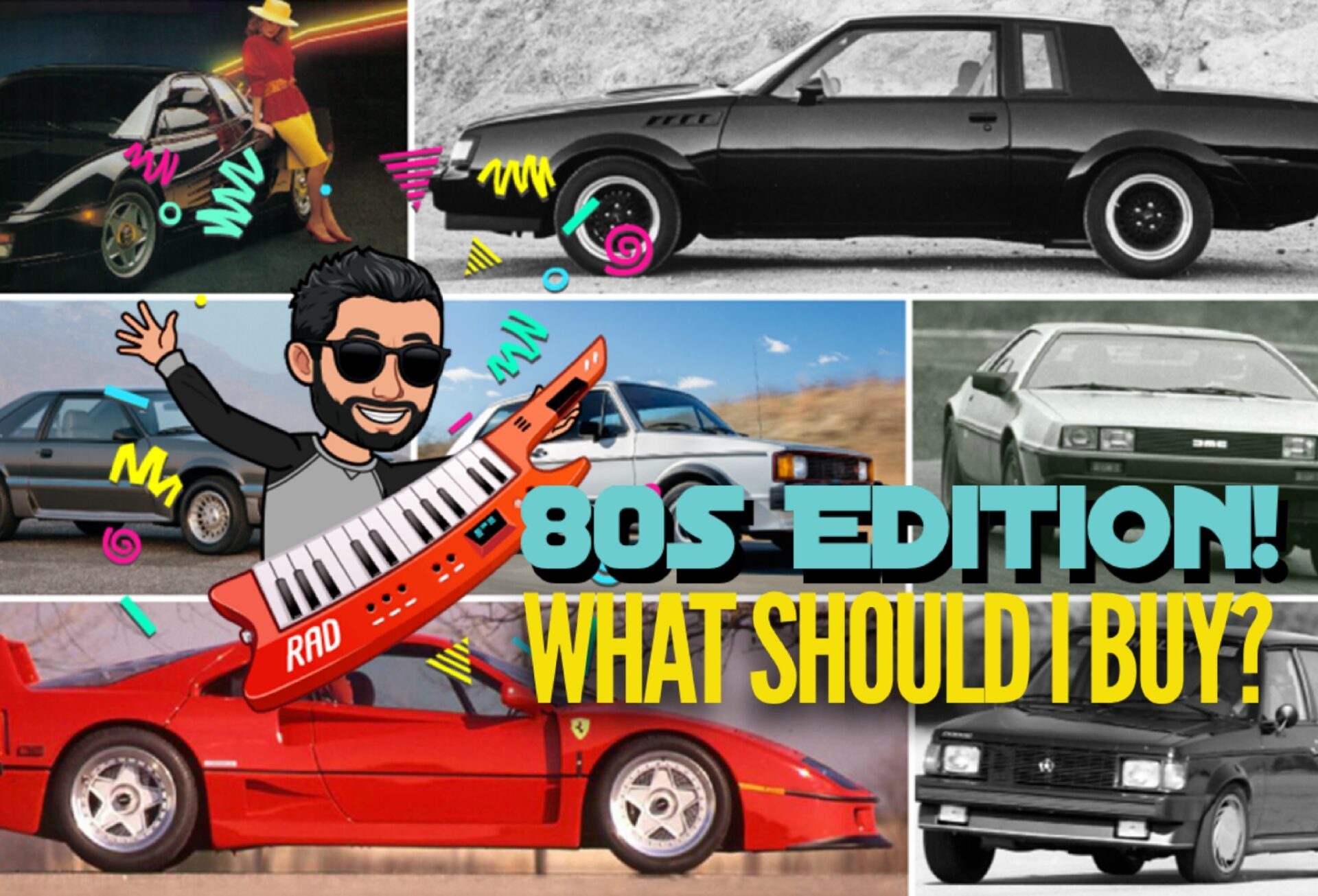
Our mission: help a first-time collector find the perfect 1980s vehicle that will make their friends say either “Where did you get that?” or “What the hell is wrong with you?” at the next Cars & Coffee. But there’s a twist: we’re settling a long-standing argument about hatchbacks. What’s the real difference between a shooting brake, liftback, hatchback, wagon, and sports coupe?
The ’80s were a glorious juxtaposition of analog grit and digital dreams. MTV, killer bee body kits, and square bodies with round headlights defined the era. It was the birth of the GTI, the rise of the Fox Body Mustang, and the golden age of homologation specials. Our panelists: Mark Shank, Don Weberg, William Ross, Mountain Man Dan, Jeff Willis, Tania, and host Brad – each brought their own slice of nostalgia to the table.
Tune in everywhere you stream, download or listen!
 |  |  |
From Jeff’s straight-piped Porsche 928 to Tania’s immaculate Audi Coupe GT, the garage roll call was pure retro gold. William confessed his love for the notchback Mustang and even admitted to owning a Fiero. Don, our resident DeLorean whisperer, reminded us why stainless steel and gullwing doors still reign supreme. And Dan tugged heartstrings with his low-slung ’82 Chevy truck, rebuilt in memory of his brother.
What even is a hatchback? Our panel dove deep into the semantics:
- A shooting brake? A hatchback with no C-pillar.
- A liftback? Think Scirocco or 944—angled glass, not vertical.
- A notchback? A sedan with a trunk, not a hatch.
- A wagon? A three-box design with a D-pillar.
Turns out, the 1980s were a buffet of body styles. From the Camaro’s liftback glass to Tania’s GT Coupe with its funky trunk, the lines blur fast. And don’t even get us started on the European definitions – Mercedes calls everything a shooting brake, apparently.
- Shopping Criteria
- Highlights
- Transcript
- Bonus Content
- Learn More
Shopping Criteria
In this episode, the Break/Fix panel dives deep into the world of 1980s cars, engaging in a lively debate about the best vehicles for a first-time collector. The goal is to find a unique car that will either make friends exclaim, ‘Where did you get that?’ or question, ‘What the hell is wrong with you?’. The 80s, a decade known for its greed-is-good mentality, big hair, and revolutionary music and sci-fi, was also a transformative period for the automotive industry. Iconic cars and the juxtaposition of analog and digital technology shaped this era. The panel, comprising veterans Mark Shank, Don Weberg, William Ross, Mountain Man Dan, Jeff Willis, and executive producer Tania, kick things off by sharing their favorite personal 80s vehicles. They debate hot hatches, convertibles, sports coupes, and even delve into the world of obscure, often forgotten 80s cars. The discussions range from European classics like the Porsche 928 and Mercedes G-Wagon to true American muscle cars and quirky imports. Nostalgia, unique body designs, and a range of performance options form the crux of their debate. The episode caps off with each panelist choosing their ultimate 80s car given an unlimited budget, covering everything from Lamborghini Countach to the Saab 900 Turbo.
- Ok we all know the drill…. 50/100/Infinity those are our price points. Avoid the obvious cars… What are the boundaries 1978 – 1994/5?
- We’ve said in plenty of prior episodes we have to be a little more elastic on the year ranges because some of the best cars from the 80s started in the 70s, but also carried through to the 90s. Case in point the Porsche 928.
- Since we’re going to debate the difference between: Hatch, Lift, Wagon, Shooting Brake and Sports Coupe; I think all of our “exceptions” are going to fall out of that discussion – so let’s go!
- More specifically… What is a Hot Hatch?
- The 80s was the era of “Homologation Cars” – thanks to WRC!
Highlights
Skip ahead if you must… Here’s the highlights from this episode you might be most interested in and their corresponding time stamps.
- 00:00 Introduction to the Panel and the 80s Car Culture
- 01:16 Debating Hot Hatches and Body Styles
- 02:12 Personal Stories of 80s Car Ownership
- 05:14 Exploring Unique 80s Cars and Trucks
- 33:27 The French Car Invasion
- 39:00 Obscure 80s Cars and Hidden Gems
- 40:42 The ASC McLaren Capri and Mustang Evolution
- 41:39 Convertible Craze of the 80s
- 42:31 The Rise of Affordable Classics
- 42:43 The Iconic M81 Mustang
- 45:54 Audi’s Experimental Era
- 48:40 The AMG Hammer and Other German Legends
- 55:45 American Muscle and Tuners
- 01:03:12 The Underrated 80s Sedans
- 01:11:52 Japanese Icons and Oddities
- 01:22:35 Nissan Maxima vs. Infinity Q45
- 01:23:06 The Power of the Q45
- 01:23:46 Nissan’s Branding Challenge
- 01:25:08 Lexus SC 400 vs. SC 300
- 01:26:20 Toyota Century: The Ultimate Japanese Luxury
- 01:30:23 British Car Gems: TVR Tasmin and Austin Minis
- 01:32:46 Aston Martin’s 80s Revival
- 01:33:33 Lotus Esprit: The 80s Supercar
- 01:36:53 The Quirky Saab 900 Turbo
- 01:44:52 BMW’s Underrated Classics
- 01:51:41 Ford’s Sleeper: The LTD LX
- 01:55:49 80s Car Wishlist: Final Thoughts
Transcript
Crew Chief Brad: [00:00:00] Our panel of break fix Petrolhead are back for another rousing. What should I buy? Debate using unique shopping criteria. They’re challenged to find our first time collector, the best vehicle that will make their friends go. Where do you get that? Or, what the hell is wrong with you at the next cars and coffee?
Crew Chief Eric: Heralded as one of the greatest decades in history when greed was good, Jordash jeans were worn above the belly button, hair stood on end with aid from Aquanet. Bands like Depeche Mode ushered in a new generation, and a next generation of sci-fi was also born. Cars were seen also as superheroes. This.
It’s the only time where there is a juxtaposition of both analog and digital. While a generation of Petrolheads were both living their best lives and early adopters simultaneously,
Crew Chief Brad: the malaise era might have been the start of the square bodies and round headlights movement. Oh, the eighties. That was the era of M T [00:01:00] V Killer Bees body kits and a massive evolution in the automotive industry where arguably some of the iconic cars of our generation were born and carry on through today.
Crew Chief Eric: That’s right, Brad. And like all good, what should I buy? Episodes. We have some shopping criteria. This time we’re gonna settle a long standing argument about hot hatches. What is the actual difference between a shooting break, Liftback hatchback wagon, or a sports coupe? Our panel of Petrolhead are challenged to solve that mystery as well as find our first time collector, the best econo box that will make their friends go, where’d you get that at?
The next cars and coffee?
Crew Chief Brad: Picking up where we left off The year is 1983 and there is no Corvette, but instead, the world is introduced to G T I. Joining us tonight, our veteran, what should I buy, panelists, our nineties expert, mark Shank, Don Weiberg from Garage Style Magazine. William Ross from Exotic Car Marketplace.
Bow Tie Man and Square Body Historian [00:02:00] Mountain Mandan. And returning guest Jeff Willis, along with our executive producer Tanya. Welcome to the show, everyone. Let’s go retro. This is the real eighties on eight.
Crew Chief Eric: Thanks, Brad. All of us here either have lived with, enjoyed, or still own an eighties vehicles.
Let’s set the mood with a little bit of a round table talking about our favorite personal eighties vehicles and maybe in our fleet. And Dan, you’re limited to only one fair warning that you gotta pick your favorite square body out of all those years. So why don’t we kick it off with newcomer
Jeff Willis: Jeff Willis.
Well, thank you for having me. I’m excited to be here in my fleet right now. I’ve got a 1980 Porsche 9 28. It’s straight piped. It’s totally got the race livery on it, but it’s all road legal pretty much. So I’ll leave that to whatever you want to think about that.
Mark Shank: We’ll have to scrub the recording.
Jeff Willis: Yeah, right.
Crew Chief Brad: California officials are on looking for you right now.
Jeff Willis: The eighties are my jam. [00:03:00] My very first car was a 1986 Camaro, and I know that we’re not supposed to talk about those, but other than that, I have a whole list of wish cars that I’ll be talking about at some point during the podcast today. Another
Crew Chief Eric: man of the eighties.
Mr. William Ross. What you got for us?
William Ross: Well, I, anything in my current fleet that’s from the eighties, but I’m a big fan of the Fox Body Mustangs, but I like the five liter notch back. My man. My man. Nice undercover, you know, low key doesn’t have all the flares, that kind of stuff on the GT version of it, but just a nice five speed, five liter notch.
Back.
Crew Chief Eric: A little birdie told me you also owned a Fiero at one point.
William Ross: Heck yeah, I did. I had a fi, here’s how it started in my eighties. My first car was a Mazda G l c hatchback. Beat the living crud outta that thing, jumping over railroad tracks and stuff like that. Then I moved to my firo gt, loved that car.
I think it was great, you know, a little go-kart. And then I had my Mustang GT had an 85 GT free, you know, all the flares and stuff on it. So it was kind of nice hatchback, but had that through into [00:04:00] college. So yeah, I had my fair share of fun stuff in the eighties. Tanya,
Executive Producer Tania: my eighties car is in the photo right there and in my garage at the moment, 1985 Audi Coop gt,
Crew Chief Eric: well maintained and fully restored on the exterior.
And the interior is a pretty immaculate, too great car.
Don Weberg: Tanya, I gotta say, when you popped up and that little gt was sitting back there, my heart literally did stop for a second because I was practically raised in one of those things. My uncle was horse Audi dealership owner, and he liked the Audis ’cause they were a little more conservative.
And so he always drove these gray or dark silver Audi four-door sedans. And then one day he shows up with that. The year is 1987, the month is April and Uncle Howard is getting down in his seventies and he’s feeling youthful again and he wants to relive his second childhood. And that was the car. He was, by God going to do it in, couldn’t get out of its own way thanks to an automatic transmission and being completely bone stopped.
But yours truly a fan of anything with two [00:05:00] doors red. I was all over that car, like a cheap suit. So your car really stopped my heart for a minute. It did.
Crew Chief Eric: And that’s number seven I think that we’ve owned of Audi coops in total. Between you are Quattros and the regular front wheel drives. So Don, since you went there, you are our resident DeLorean expert.
You’ve got an eighties car in your fleet right now.
Don Weberg: Yeah, I have this little DeLorean. It’s kind of the king of the eighties in my opinion. There’s a lot of cars out there quicker, a lot of cars faster, maybe even better looking. That’s debatable. I disagree with all of you. But anyway, yeah, that would be my perfect eighties car.
It helps a lot with clearing by sinuses up once in a while, you know, it helps a lot, so it’s good stuff. Then I guess the only other eighties thing I might have you guys be the judge. It’s a 79 Caprice, and then there’s a 79 Fiat. Both of them teeter the Fiat because it came from the sixties really. That car started in 66.
It’s a 1 24 spider, but then you’ve got the Caprice, which [00:06:00] started life really in 77 because it’s a brick. It’s one of the square caprices, but it spanned the eighties all the way to 1990 until it was put out of production. So it was the choice of cops and cabbies. Everywhere
Mark Shank: in the eighties. Yeah. I’ll give you that.
Don, I thought of you. I called my dad in preparation for this episode and I
Don Weberg: somehow, that sounds bad. I don’t know. Well,
Mark Shank: no. I said, dad, if you could buy any classic car from the eighties, what would you get? Mely outta his mouth. DeLorean.
Crew Chief Eric: Well, you’ve had a couple eighties cars yourself, right, mark?
Mark Shank: Yeah.
Really just one worthwhile one. I had an 85 Porsche nine 11 Carrera. I had a ton of money put into it. I got it from someone who was in a bad spot in 2009 in the, you know, financial crisis. They were in the mortgage business. He had almost 60 grand in receipts and I bought it off him for 20,000. I put some money in it, and I loved that car to death.
I’m a damn fool for forever selling it.
Crew Chief Eric: Well, Dan, did you pick a square body or you got something better?
Mountain Man Dan: Well, are we talking [00:07:00] about favorite of cars in my fleet from the eighties?
Crew Chief Eric: Either what you own or what you’ve owned, or what is your favorite of the eighties?
Mountain Man Dan: Y’all know that I’m a sucker from my square body Chevy trucks, and I have one from almost every year of the eighties.
But I would say of my trucks, I’d have to say my 82 is probably my favorite because when my brother was killed, he helped me build that one. And as you saw, I finally got that back up and running recently. So I’m super excited to be driving that again. But the problem is, is it still drags the whole way out the driveway ’cause of how low it sits.
But it sounds so good. It does. It does. She’s pretty. Other than that, I would have to say my Grand Prix, because I’ve owned that since I was in high school. Soon the engine would be getting put back in her and she’ll be back alive as well. I would say have my fleet. It’s between those two of my favorites.
Crew Chief Eric: So Bradley, you know I, I thought about your 37 different cars you’ve owned over your lifespan and I think you just had a brief flirtation, just like a one night stand with an eighties car, proper eighties car, didn’t you?
Crew Chief Brad: No, [00:08:00] I am completely out of my elements. I was looking back at my list of 250 cars I’ve owned in my lifetime and not a one is an eighties car, not an 81.
Is that what you said? Oh, wait, O okay, now I know where you’re going. I was gonna say, I do not own or nor have I owned an atheist car, but that apparently is wrong. You just reminded me that for a brief twinkle in your eye, owned an 81 horse, 9 24 turbo. 9 31 Turbo. Can I take partial ownership of that since it resided here for a little while?
That’s the case. And possession is nine-tenths. Then I never owned the car because it either resided at Matt Yips house or your house. In that case, I never owned a Porsche, but I owned it long enough to join P C A. You had tax the titles, ounces ownership. There you go. Yes.
Crew Chief Eric: A brief flirtation with that 9 24 Turbo.
So there you go. Yes. Ran when parked.
Crew Chief Brad: Ran. When parked. Never ran again.
Crew Chief Eric: Well, like I said before, we’ve had tons of [00:09:00] cars from the eighties over the years and whatnot. My personal favorite was actually the car drove college. I was the second and fourth owner of this car. I had an 83 UR Quattro. They only brought 627 of those cars to the United States to begin with, and I was a stupid college kid that drove one every day and people were like, what is that?
With the jackknife fender flares that kind of set the E 30 M three, the 9 44, the RX seven, all those cars of that era copied that style that everybody wanted, those jackknife flares from the r Quatros. I will say that like all the other eighties heroes that I’ve driven, like R five Turbos and Camaros and things like that, you know, they sort of just don’t live up to the hype.
And we’re gonna talk more about homologation cars. I’m sure as we go through this, you know, that’s our trip down memory and lane for the eighties. But like all what should I buy is we’re here to shop and spend other people’s money. So how do we do that? You all know the drill at this point. We’ve got these weird buckets of money that don’t make much sense, so I think we’re just gonna ditch those all together.
’cause eighties cars have [00:10:00] gotten pretty pricey. So the 50 a hundred, 150 is just whatever. But we gotta put some limitations around what we’re talking about. We’ve said before. We can’t pick the obvious choices. 9 44 is out 3 0 8. Ferrari is out. Iroc, Camaro is out. All that stuff is out the window. We gotta find the oddballs.
We gotta find the fun cars for our collector. We also have to settle this debate about I. The body styles of these cars because I think the eighties had one of the most diverse pallets in terms of body types to choose from. And we gotta figure out what the hell is a liftback, a hatchback, a fastback, a sportback, a shooting break the station wagon.
Like what is the difference? Somebody explain it to me.
Mark Shank: I love arguing over the definition of a shooting break. I think that is one of the best to ridiculous argument to get in. I mean, Mercedes calls their wagons shooting breaks. In Europe, they don’t even call ’em wagons or estates. They’re just a Mercedes shooting break.
Crew Chief Eric: Have you ever looked at the definition of a shooting break?
Mark Shank: I have a personal definition of a shooting break, which is, [00:11:00] it’s a hatchback with no C pillar, right? If it’s a hatchback with no C pillar, it’s a shooting break. It’s got the A pillar on the window, it’s got the B pillar on the door. It’s got no C pillar and then obviously the D pillar, ’cause it’s hatchback.
Like that to me is a shooting break.
Crew Chief Eric: But isn’t that a lift back then? ’cause a Rocco is technically a lift back and not a hatchback.
Mark Shank: So if you want to get into the concave, convex nature of the hatch. But yeah, when it flattens out like that,
Crew Chief Eric: I look at at it as the angle of the body line itself. So for me, I think a wagon is a three box design with a D pillar.
A hatchback is a shortened version of that, but the rear hatch is straight. It’s 90 degrees. I think we can all agree on that. But the controversy comes into your point about the shooting brake, the lift back, the fast back, and William mentioned the notch back. And then you have a car like Tanya’s, a GT coupe, which is technically not a hatchback, a liftback, it’s got a funky little trunk.
So it’s considered a sports coupee, but so is a 9 44, which is a liftback, like a Corvette, a [00:12:00] cama. So it gets really blurry really fast.
Crew Chief Brad: Well, the notch back was just a sedan. It just had a trunk.
Crew Chief Eric: But what’s the other funky one with?
Crew Chief Brad: That’s the hatchback. That’s the G D T hatchback. So how is that? Or liftback?
Crew Chief Eric: Yeah, I was gonna say right.
Crew Chief Brad: When people talk about the notch, they talk about the sedan. It had a proper trunk. The rear glass did not live
Crew Chief Eric: well. Isn’t a sedan, isn’t it four doors? No. Yeah. See it gets the eighties.
Crew Chief Brad: Everybody was high on cocaine. Oh man.
Mark Shank: Right
Crew Chief Brad: on. So, so, but with the
Mark Shank: examples you’re pointing out, they don’t because Rocco, I’m looking at these old Rocco’s, so it’s like a 9 44, you know, it doesn’t really have a D pillar, it’s just kind of moved forward and pulled down a Rocco.
Does there have to be some roundness on the back to make it a shooting break? I don’t know,
Crew Chief Eric: but that’s the beauty of this particular decade in automotive history, is that there’s so many different body styles to choose from. We’ve never had that type of proliferation again. We’ve actually consolidated down and there’s less and less wagons today than there ever has been.
Hatchbacks are sort of going away in lieu of [00:13:00] SUVs, which are just giant hatchbacks on stilts and you know, things like that. So we have a lot to choose from. It really depends on what you’re into. And then obviously we can go pick up trucks, trucks, all that kind of stuff was also available at this time period.
It’s like a smorgasbord of different cars. So the question is, where do we take our prospective buyer?
Don Weberg: We only talking hatches.
Crew Chief Eric: Oh no, I just wanted to clear up an argument. ’cause one day, oh, Brad and I at the office we’re going back and forth about is a Camaro a hatchback? And I’m like, no, that whole glass lifts up in the back.
But it’s not a hatchback, it’s a liftback. Just like a 9 44 is a liftback.
Crew Chief Brad: When he says, we got into an argument, it was because we were trying to iron out details for a spec race in This is true in Forza,
Crew Chief Eric: this is true. And we were
Crew Chief Brad: trying to decide if we wanted to allow cars like the Camaros and the Mustangs in this spec race.
The determination was no, because they’re not hatchbacks. They’re lift backs. I,
William Ross: I guess the question is though, is, is this gonna be their only car? Is it just gonna be a fun car? I mean, utilitarian aspect of it. I mean, they’re gonna have to use this [00:14:00] for all their daily activities or is this just gonna be, you know, something they can go have fun with?
Crew Chief Eric: I think anybody that’s buying an eighties car today is definitely buying it as a either showpiece or a tool around car. I don’t think anybody’s really buying an eighties car as a daily driver anymore. You know, not without considerable amounts of money. Talk to Daniel.
Jeff Willis: Well, I love that you said Eric about the crux because on my list I’ve got the iconic Dodge Rampage.
Don Weberg: Oh my god.
Jeff Willis: Yes. And I’m telling you, Dodge Ramp is just like the old crappy little brats that were so popular. I love the heck out of those things. Those are utilitarian, right? They
Don Weberg: are. Yeah. Well, and remember too, Volkswagen had one too. The caddy, the
Crew Chief Eric: rabbit. Yeah. What’s cool about the rampage was on my list of forgotten.
I have a lot of Dodge on my list today, but, so Don, you know, as a, as a closet Chrysler nerd yourself. You know, we talk about the TC a lot, which is on the Q platform. We’ve talked in the past about the K cars, which started in the seventies and things like that, but the rampage, although it looks like a K [00:15:00] car, is actually on the L chassis.
It’s like its own beast, but the parts are interchangeable with the Omni and the Shelby. Mm-hmm. Which gives you this kind of little hot rod that you can build out of it, which is pretty cool.
Jeff Willis: And that was my number one. I’m glad that you went that way because the Omni, obviously there’s one that had the Shelby badge on it and that’s, you know, something that’s collectible now.
But my number one that I would want right now in that same category would be the late eighties Dodge Shelby charger with the manual turbo.
Don Weberg: I had the uh, the Shelby Dakota g l h s and the charger on my list as well.
Crew Chief Eric: Is the Daytona Z in that list too, or is that just into the nineties? No,
Don Weberg: the Z was an eighties car.
The Turbo Z came out in 84. That was their very first hot Rod. Daytona was the turbo Z, and then you had the Chrysler Laser X SE I think was their version. And that car only lasted for two years, and it went out of business and the Daytona took over.
Executive Producer Tania: They had the Chrysler Conquest. Yep. Kit Conquest
Jeff Willis: [00:16:00] tsi,
Executive Producer Tania: which was the same as the Mitsubishi ion.
Those
Jeff Willis: were cool. That was the RX seven competitor. It was 180 horsepower or something stock.
William Ross: If you guys love that car. I know a gentleman down in Virginia up on his hill, he’s got acres and acres of land, but he’s got probably 120 of those cars just in various. Rusted out state. He is got a couple of the race cars that did in that little celebrity race series.
With those, he is just got ’em all over. If everybody’s looking for one, let me know ’cause I can set you up this guy. ’cause he is just got hundreds of ’em sitting out in the field just in various stages
Mark Shank: of the k I was shocked how cheap they were on bring a trailer.
Crew Chief Eric: What are they going for?
Mark Shank: So like the G L H S, the last year that Shelby Charger, they only made a thousand of them sold for 12 grand like a couple months ago.
The Chrysler C S X, which same drive train, they made their version of that under 10,000. The Omni G L H S, the collectible one is still under 20 easy. Some transactions at 15 grand.
Crew Chief Eric: That was an [00:17:00] over 200 horsepower car too, which back then is like, there’s a lot neck breaking. Yeah.
Mark Shank: Yeah. Front wheel drive and kind of insane.
Crew Chief Eric: And lots of torque steer too. It’s beautiful. It’s a good thing.
Mountain Man Dan: Well the partnership with Mitsubishi for the engines was what benefited them. ’cause if it wasn’t for that, that car would’ve been crap if they would’ve used one of their off the shelf engines.
Crew Chief Eric: Well the best part is the base Omni was using a rabbit engine, so they were also partnered with Volkswagen to develop that car.
So it’s sort of a weird marriage of three companies to make the omni work.
Mountain Man Dan: Yeah, I, I spent a lot of time riding around in one in high school ’cause my cousin had one. We beat the living hell outta that car.
Crew Chief Eric: Before we go a little bit too far down the path and why I wanted to talk about the Daytona Z and, and there was an IROC version of that and a bunch of other stuff later, you know, just like there was the IROC Camaro is how far into the nineties mark are we allowed to take some of these cars?
’cause if we’ve argued before, some of the best nineties cars started in the eighties and some of the best eighties cars started in the seventies. Do we have a sort of grace year that we can cut off for this [00:18:00] discussion?
Mark Shank: Just for clarification, I think one of the best nineties cars you could have bought in 2017,
Crew Chief Eric: are we talking about the Dodge fiber?
Mark Shank: Yes. If it were entirely up to me, there would be a fair amount of leeway. Right? Like so for example, I would say a 19 89, 300 ZX turbo is obviously a nineties car, right? Just culturally identifies as a nineties car
Crew Chief Eric: like a rado would or, or a Supra or something like that.
Mark Shank: Yeah. And like I would say a a 9 6 4 for me, a 9 6 4 Porsche would be a nineties car, but came out in 89.
But on the same side, it’s like some great models were made towards the end in the early nineties. Right? So you’ve, you know, you got your Shelby Fox body, we had the GT 40 heads and everything. They made 91 through 93. There are definitely cars that kind of stretched out into the early nineties that I think identify as eighties cars if I can keep leaning on that language.
And so I would tend towards setting a cutoff around probably 93 as like the last model year.
Mountain Man Dan: And that’s when many of ’em [00:19:00] transitioned to new body styles around the 93 94 timeframe anyway. Yeah. At least on, yeah, for a lot of things.
Crew Chief Eric: Should we continue to pull on this Dodge thread just for a moment longer?
Don, do you wanna talk about the Miranda? Is that, is that on your list of vehicles?
Don Weberg: You’re not being arrested. It’s not the Miranda, it’s the Marada.
Crew Chief Eric: What?
Don Weberg: Or is it the Marada Mar? No, it’s the Marada. Which was the Cordoba. Because remember the Cordoba has the Corinthian leather. Yeah, the Marada had vinyl.
Terrible, terrible, terrible. They were wonderful cars. As long as you didn’t wanna go, you know, anywhere, they were fine. Hey, I’ll tell you so down. You got prostitutes walking by you. You’ve got their attention. Trust me, they know that this is a classic car right here.
Crew Chief Eric: So since we’re pulling that Chrysler Plymouth Dodge Thread still for a moment, I wanna touch on something that I’ve mentioned before, which is the A M C Eagle four by four.
I still think that’s an interesting choice. It’s still in that weird period. They built that car into the eighties, even though it [00:20:00] started in the seventies. But there’s another car that is just kind of classically eighties. And Brad, what do we think about the Jeep Cherokee xj?
Crew Chief Brad: I’ve always loved the Xjs.
They’re, I think they’re good. They’re a great hatchback.
Crew Chief Eric: The Xjs one of those things that if you’re not a truck person, you could kind of go the other way. Lower it, do some stuff. Blasphemer. No,
Crew Chief Brad: no, never. No way.
William Ross: Why not? Why you could make a low rider
Crew Chief Brad: Jeep though. Lifted. Lifted on 30 sevens. Take the doors off and send it.
That’s the only way those trucks live. ’cause the only way those hatchbacks live
Mountain Man Dan: well with that generation of Jeeps. They weren’t really good until when they started putting the four liter in ’em in the late eighties.
Crew Chief Brad: Yep. That’s what we’re talking about here.
Mountain Man Dan: But I’m saying they made ’em earlier in the eighties, I believe, but it wasn’t until later eighties when the four liter became the powertrain and that four liter was bulletproof.
Crew Chief Eric: Yep. So Jeff, we’re gonna play the great Carac here. Can you think where I’m going with the xj?
Jeff Willis: I’m wondering if you’re going in the direction of something that’s a little more rare. The Dodge Raider. [00:21:00]
Crew Chief Eric: Oh no, I was gonna go down the Comanche path.
Jeff Willis: So yeah, Dodge Raider being the, what was it? The copy of the Mitsubishi something or other.
It looks like a little, an affordable version of a defender almost. I love ‘
Crew Chief Eric: em. I like the Comanche ’cause it’s a XJ with a bed on it. And those are also super rare. They didn’t make a ton of those either. And then you could slam it down on the ground on bags and stuff. Brad, I’m not gonna lie. That would be cool
Don Weberg: if we’re going down this four by four Ss U V Pickup.
Ridiculousness road. I cannot watch the fall guy now without thinking of you. Okay. I watch the Fall guy every night. There you are with that big truck. Okay. Anyway. Can we get off the Jeep thing for a minute or are we still on there? Sure, sure. Okay, because I want to go someplace really, really weird. This thing popped in my head late at night during my insomnia attack, and when it came out I thought, my God, this is the.
Ugliest thing that’s ever hit four wheels, but it was so ugly. I fell in love with it. I had to have one someday. I just had to, and then I found out it was made in Italy and had a Ford Drive train, [00:22:00] and I thought, this is for me. This is perfect. Then I found out it was designed by Tom Sharda, who also designed my 1 24, and I thought, I’ve gotta have this thing someday.
Ladies and gentlemen, I’d like to bring up to the board for potential consideration. The la what is that? Oh, LA
Crew Chief Eric: yeah,
Don Weberg: the u v for SUVs for the people who are tired of Range Rovers and Jeeps with wood on the side. Wow, that is ugly.
Crew Chief Eric: Jesus Christ. That was ugly.
Mark Shank: I rock your world. Do I not? You gotta love that.
The Wikipedia image, all the paints all jacked up, like they couldn’t even find a good one for the image on Wikipedia.
Don Weberg: I’ll tell you, growing up where I grew up, We had a dealership. It was a Porsche Audi dealer, and they took on the La Forza franchise. I remember riding down there with my bike. They had four or five of ’em sitting down on the lot and I, I think the saddest part about the whole thing was about a year later they still had those same [00:23:00] four or five.
Oh no. It was sad. Nobody was buying these cars.
William Ross: Cars and bids. Got the monitor as being ultra rare and rare and what,
Crew Chief Eric: 50 bucks. I mean, what do they want for these things?
Mark Shank: I’m like, wait. Ultra rare. It has a speed hump though. Look, look, it has a power bulge on the bonnet.
Crew Chief Eric: It’s like an eclipse
Mark Shank: packing weight.
It can lay some pipe.
Crew Chief Eric: Oh, that’s terrible.
Mark Shank: Notice all the colors of the paint.
Don Weberg: That is awful. See in the back door? The front door, the hood. They’re all different to the kind of car I would buy to tow my UO around with.
Crew Chief Eric: So since we’re still talking about trucks, straight out of the Trias period is the gwa, you can’t get any more.
I don’t know what decade that thing is.
Don Weberg: Can we bring that up in the eighties? Because that damn thing dates back to the forties, right? I mean that you stretch back. That thing really goes back.
Crew Chief Eric: It has not changed. They still make it the same way today.
Don Weberg: I know,
Mark Shank: I know it’s the same thing, but is it a forties car?
You can’t buy the same one.
Crew Chief Eric: The thing about the GWA is it still screams [00:24:00] eighties. In the same way that like the Lincoln Mark VII is the banker’s hot rod. You know, the kind of thing, it’s like it’s got this certain span about it that it is timeless, but it’s also kind of at that height. It’s got that like bourgeois about it that makes it eighties, that it just fits in with the rest of the landscape.
Right. And you can’t say that it’s not, you wouldn’t see a GWA in an eighties movie. I mean, it’s like, all right, cool. I, I think it fits.
Don Weberg: No, I think it works. I do. I, I don’t know. I have trouble with goes
ire. I hated them. I did. I gotta be honest, I hated those things because for me, the height and the width of me, when you sat in that truck, that was it. You were not going to slouch and get more comfortable. And I’m sorry. Back when I worked for MotorTrend, I drove a lot of Lincolns. I was used to slouching all the time.
So this whole upright position thing, which is great for certain German people, it didn’t work for me. It just couldn’t stand it. I couldn’t get it outta my head that this thing just reaches all the way back to the [00:25:00] forties. It represents, you know, the war and yet they still keep building the stupid thing.
Yep. And it is the worst thing in the world, off road. I don’t care what anybody says. I’ll put it to you this way. Never ever did we get one of these cars at MotorTrend that did not have that stupid little yellow triangle with the inflammation mark in the middle. Every single Mercedes, SS u V, doesn’t matter if we’re talking about the G wagon, the ml, any of them, they all had that stupid thing on there.
We were always calling Mercedes, what is this about? What is it? Don’t worry about that. Just, you know, just, just don’t write about it. Don’t mention it. It’s a brand new car. It has less than 300 miles on it. This thing is on, and we’re not gonna write about. You sure. Don’t wanna just send us another one to prove that, oh, I don’t know.
Maybe you built one that the light doesn’t come on. Sorry, you hit something here. I guess because I’m getting pretty emotional about this, I’d much rather talk about my Lata. My lata is much better.
Mountain Man Dan: So the La Forza though, can anyone else look at that and not [00:26:00] see a predecessor like the a Suzu Rodeo?
Because I see that, oh yeah, it looks
Crew Chief Eric: like a weird Isuzu trooper. Like
Mountain Man Dan: no power
Mark Shank: bulge on a rodeo.
Don Weberg: Did Tom Arda have anything to do with any of those Jesuses? ’cause Sharda designed that Laa, I guess the understanding was he had to use a lot of existing parts to make it work. So it was sort of like putting together like a Lego set
Crew Chief Eric: from what a A lot of factory.
I mean, that thing looks like it’s out of the Eastern block.
Don Weberg: Yeah, I know. I remember those stupid things were like 50 grand. What? I mean, they were insane. They were cheap. No, and they were built on a Bronco chassis, which, hey, I’m a resident Ford guy here, but I love Broncos. Come on. When I came to Bronco for 18,000.
Why not just get the Bronco? I will say that yes, the Mercedes is definitely an eighties vehicle, but it just reaches back to the forties and I just don’t get it. I can’t comprehend it.
Mountain Man Dan: Will it make you feel any better, Don? That I almost burnt one of them gwas to the ground in Albania when I was down there.
Don Weberg: Do you have video? I’d love to see video.
Mountain Man Dan: No, I don’t have video unfortunately. [00:27:00] Alright,
Don Weberg: draw me a picture. Someday
Mountain Man Dan: the battery broke loose and like fried all the wires on Hood and smoke just started going everywhere and it was epic.
Don Weberg: Oh no, that’s weird because a friend of mine literally just bought a brand new S some big shot four door, $500,000 Mercedes driving home from the dealership.
The battery exploded under the hood.
Crew Chief Eric: That’s what the bulge is for on the La Forza. Okay.
Don Weberg: Baboo
Crew Chief Eric: the
Mark Shank: room absorbs the blast.
Crew Chief Eric: Don’s not happy with the G wagon, but I have an alternative for you. I had a feeling you weren’t gonna like that as an option, but think about our, our perspective buyer. You wanna buy something totally eighties, maybe it looks like a matchbox car has off-road potential and you don’t wanna get into the Jeep cult lifting and big tires and all that kinda stuff.
What about. The Suzuki Samurai,
Mountain Man Dan: they’re getting hard to find in decent shape. They are. If you don’t have to go on the highway, you’re all right.
Jeff Willis: The geo tracker. Yes.
Don Weberg: Yes. Jeff, you hit it. That is my dream. SS U V. I’m not kidding you. Oh, I love the geo. I was gonna say, I raised [00:28:00] you a geo tracker, but Jeff just blasted straight through it like a G wagon.
So Jeff is the GWA of the group, but yes, the samurai is fun. Just don’t turn quickly.
Crew Chief Eric: Well, the same is true, the trooper. Right? It remember the motor week tests had to put the bars on it so it wouldn’t roll over. Yes.
Don Weberg: You know another one that liked doing that with the Bronco two, which is. Absolute eighties.
I don’t think that thing made it to the nineties. I don’t know. Had those weird side windows. Yeah, the side windows go up into the roof a little bit. Yeah. Yeah. Kind
Crew Chief Eric: of like the The Land Rovers. Yeah.
Don Weberg: Yeah. They were terrible. They loved tipping over. Now I would love to have a Suzuki though. I would. And I think their very, very eighties.
I had a friend who had a girlfriend who had one. It was like a jungle gym on wheels. You were always just a little terrified when that thing was going down the road. No, I loved it. I thought it was great.
Jeff Willis: Well, Don, lemme ask you this. Do you remember the Suzuki X 90, the one that came later? Yeah.
Don Weberg: Yes. That was just more rounder.
Yeah. Yeah. And it was more of a sedan looking thing, wasn’t it? Yeah. Is that the one you’re talking
Jeff Willis: about, Jeff? Yeah. [00:29:00] But they touted it. They put pictures of it in front of big cat machines on the construction site. Oh Lord.
Don Weberg: Yeah. Terrible. Yeah, that thing was goofy. There were a lot of goofy SUVs that came out at that time.
I can’t remember too many of ’em, but that Suzuki was one of ’em. It was. It was pretty weird.
Mountain Man Dan: Bronco too. That was almost the same chassis as the Rangers at that time. Right? I don’t know what it was with the engines. Ford put ’em in that time, but like from the factory, they came with a tack to them and it’s like you start it up and it would sit there just tapping and Ford was like, oh, that’s normal.
Crew Chief Eric: That’s like the check engine light on the G wagon. Like they, Todd, I was talking about. But I, I wanna finish out this thought on trucks because then we can move on to really obscure stuff, because I think trucks are an important part of the eighties. We all fell in love with the fall guy and the square bodies and all that kind of stuff, and I, I don’t want Dan to take us on a three hour tour on the SSS Square body.
There’s two more that are on this list and I’m glad Mark allowed me to walk into the nineties just a little bit. I hope I’m on the same wavelength as some people here. I’m thinking G M C Cyclone.
Don Weberg: Oh, there you go. The [00:30:00] Cyclone and the Typhoon. Those were awesome.
Mark Shank: Feels nineties to me. It does
Crew Chief Eric: 91. It is,
Mark Shank: but culturally it feels nineties.
It but eighties SS 10 though. That’s true, isn’t it?
Don Weberg: I agree with Mark though. ’cause I, I, believe me, I was thinking about the Cyclone and the Typhoon, both of them. I love both of those vehicles. I resisted, I thought, no, I’m not gonna bring this up because it’s a nineties car. To me, that thing kind of kicked off nineties performance.
It really did. ’cause to come into the nineties, oh my God, they built this little pickup that will spank a Corvette with the right driver. That thing is mind blowing. It really, really is
Mountain Man Dan: a great thing about it. It held the record for Fastest Truck for one of the longest spans.
Crew Chief Eric: Well, up until recently, as a
Mark Shank: matter of, but zero to 60 time was something like 25 years.
Crew Chief Eric: Yeah. So I have one final one. This is how we get into obscure stuff. Does anybody know what the abbreviation, R E P U stands for? Mazda produced something called the Repo, which is the Rotary Engine pickup. So it’s [00:31:00] like a Mazda 2100 Ford Ranger, but rotary powered with the RX seven 13 B in it. So that’s kind of a neat thing.
They do exist. You can import ’em from Japan. So if you wanna do something really off the wall and have a kind of interesting pickup truck, I think the Mazda repo would be something really cool to look into. Are you
William Ross: pronouncing that right? Repo re repo
Don Weberg: repo. My repo got repoed. Yeah. Yeah. You know the nice thing too about the rotary Mazda pickups, they do go back to the seventies, breaking away from our eighties only discussion.
That little pickup was around in the seventies with that rotary motor. If you’re gonna import one from Japan, you’ve got a big span to look for. But how many of those things survived, especially living in Japan?
Crew Chief Eric: Yeah.
Don Weberg: I mean, that’s a harsh, harsh environment for cars over there. That really is. Exactly.
Mountain Man Dan: If individuals look of the repo, they could also go for like the Toyotas of that generation.
’cause some of those small Toyota pickups had that similar look to them. Oh,
Crew Chief Eric: the tacos?
Mountain Man Dan: Yeah. Mm-hmm.
Don Weberg: You have that 22 [00:32:00] re and the 22 R. Those were fantastically powerful, high revving, little four cylinders. They love, love, love to go. The Toyotas were fantastic.
Crew Chief Eric: Well, the nice part about this time period and why I bring up a truck like the Mazda, is that we are outside that time limit.
We can really start looking at importing cars from Japan and from Europe, right. That we weren’t able to buy, let’s say 10 years ago. Right. We’re past that. So now they’re not even really gray market anymore. You could just bring ’em in for historic when they get here, that kind of thing. So it really opens up where the nineties, they’re still like on the verge of some really cool cars being able to come over outside of like Nissan GTRs and stuff like that.
So pretty much the pallet is wide open here. Mm-hmm. In terms of what we can bring to the United States from the eighties, which is pretty slick.
Don Weberg: One of the cars that was on my list, been a dream car of mine for a long, long time. Alpine G T A. It was on my list. Anyone remember this car with the big headlights up front?
The one that says, I’m better than you because I’m French. [00:33:00] It was on my list. It was on my list. Was it? Yeah. I’ve always loved those cars, you know, and I used to read of those British magazines back in the day. There were sometimes full page ads for dealers over in England and France, and they would specialize in these cars.
And I remember thinking, my God, that is the coolest looking car in the world. I just loved them. And they had a couple different variants. I don’t remember what they were. I remember the G T A though fit in the eighties. The next one was more of a nineties car. That’s why I stayed away from it.
Crew Chief Eric: You have opened Pandora’s box.
You have crossed the threshold into my territory. We’re talking about French cars now.
Don Weberg: Well, in that case, I’m gonna do a filibuster all about TC all night long because it doesn’t get better than tc. That is an
Crew Chief Eric: obvious choice. We’re not allowed to go there. Oh
Don Weberg: no. It’s been boycotted good.
Mountain Man Dan: If you’re gonna bring French cars into my generation, having driven one, when I was stationed in England, that one of my troops had picked up.
The 2 0 5 G T I ambuja. Those were quick, powerful little cars and fun to drive. [00:34:00]
Mark Shank: 1.9 liter, not the 1.6 liter. They had two.
Crew Chief Eric: Correct. And Mark, you’re right on the money. I just talked to one of my guys recently. He’s trying to import a 2 0 5 rally, which is the one six, which is the one nobody really wants, but it’s still a heck of a lot of fun.
It’s again, outside of that statute of limitations. And then you can hot rod it because it’s a eo. So why not? If you love that body style and you can’t obviously afford a T 16, why not go with the base model? Right? The eight valve G T I is just as fun as a 16 valve sometimes.
Mark Shank: Yeah, I mean it was a surprising number of transactions on Bring a trailer for those 2 0 5 GTIs.
I was looking at them as well, and I think the last one, it was in good shape. It went for 14 grand for 1.9, and you don’t have to deal with importing or bullshit like in the United States transaction. $14,000. That’s not bad.
Crew Chief Eric: I know there’s one that Tanya and I appreciated from a really early episode We did way back when when we reviewed the movie Lost Bullet and in that they featured a Renault 21, and if you don’t know what that is, it’s sort of [00:35:00] like competitor to the EO 4 0 5.
Really neat looking sedan, sort of hopped up, does have a turbo 2.1 liter, all that kinda stuff. So that’s a neat car. It’s been on my radar for a while. In the United States, there’s a Renault that people often forget about. I’m not talking about the LA car, which definitely screams the eighties. Does anybody remember the Fuego?
Don Weberg: I love the Fuego. The Fuego is a wonderful car. It’s another fine car to be broken down on the side of the roadway.
Crew Chief Eric: It’s a
Don Weberg: car is ugly, don’t hold back. Let us know how you really feel.
Crew Chief Eric: Yes. But, and the reason the Fuego is an interesting candidate is the fact that it was used for a Rene Spec series in S C C A in the eighties and Andy Pilgrim drove one of those cars and you can actually still find some of those X Reno Cup cars and they’re all Reno Fuegos because they were sold here in the States.
So it’s kind of interesting if you want something that isn’t completely mainstream but was available stateside.
Mountain Man Dan: Yeah. But the problem with that, and we’ve said this [00:36:00] multiple times with other subjects, cars from foreign countries that make it to the US are normally their crap versions of cars.
Crew Chief Eric: A hundred percent.
Mountain Man Dan: That’s the great thing about this, is now we can start bringing their decent cars in without all the headache.
Crew Chief Eric: One final French car. Okay. And this is the only time that we’ll say this on the show ever about a Ciro end. I really like the bx. I think the BX is super cool.
Don Weberg: You know how I feel about French cars?
I’m all over them. I think they’re wonderful. I think they need to come here more frequently.
Crew Chief Eric: It’s like Citroen’s attempt at making the Audi coop or the Rocco. It’s got that like boxy sportiness to it. That’s very eighties. But without the round headlight kind of feature of the BMWs,
Executive Producer Tania: you need to specify that you’re referring to the four TC because the Citro and BX is a heinous wagon.
Crew Chief Eric: You’re absolutely right. That’s true. The four tc.
Mountain Man Dan: For some reason, whenever I see cars, like they have like that rear fender skirt type thing, it just makes me have flashback. ’cause the eighties versions of that looked ugly. But when they did it in the fifties and the forties with the fender skirts, they looked good.
Don Weberg: [00:37:00] Is this the car from Ronan that the 6.9 liter was chasing down the brown 6.9 liter? Yeah. Was chasing down a four door citra and. They were duking it out and I gotta tell you, bullet be damned, that could have been the best car chase ever because you hear the throaty rumble of that 6.9 liter and you hear that screaming high-pitched opera coming from the Citro end.
Oh my god. They were both fantastic, but I don’t know if that’s the car you’re talking about.
Executive Producer Tania: No, the Citro and Zanio was in Ronan.
Crew Chief Eric: That’s the big car. Yeah. He’s
Executive Producer Tania: talking about the Citro and BX four tc.
Don Weberg: Notice how the rear end of that car looks like the Chevy Bolt. You ever see that?
Crew Chief Eric: I mean, with those gills in the C pillar, it reminds me of the coupe in the u r Quattro.
It’s got the same vent back there. Does.
Don Weberg: Okay. Yeah, it’s ugly, but I can see it. It’s a cool car just because it’s so ugly. It’s kinda like the La Forza, you know? They’re so ugly. You just gotta love them.
Crew Chief Eric: And I gotta give it to the French. They did a lot of hatchbacks and because we didn’t get a lot of French cars here, we [00:38:00] tend to kind of forget that because you look at the R four and the R five and you look at all the ciro ends and the PEOs.
Every model almost came in a hatchback or liftback. Mm-hmm. At that period. And then the wagon version. So they kind of like, were the kings of that sort of thing. Mm-hmm. But we relate to the G T I because that’s what we got from Germany and the Honda C V C C and stuff like that. The Civic and the c r s and all those.
Yeah. But the French really just, they leaned into the hatchback scene hard. So when I think hot hatches, my brain goes there again, as a first time collector, something to think about is maybe start looking at French cars and you’re not gonna see very many of them. No. At your next cars in coffee, that’s for sure.
Mark Shank: It looks so good. In black, it looked like shit in white, but in black. Oh yeah. Much
Crew Chief Eric: better.
Mark Shank: Much better. In black. I actually
Crew Chief Eric: even like those wheels. They’re so bizarre that they’re awesome. And again, I won’t say that often about a ciro end. So we can come back from France. We can put our brie and our baguettes and our burgundy aside.
What else have you guys got on your list? ’cause I, I do have some weird [00:39:00] ones.
Don Weberg: Going a little bit to the left of the French, if I may. Two Alphas G T V six. That always won my heart back in the eighties. One I thought was horribly ugly growing up, but today I absolutely can’t get enough of them. The Alpha GTV six and uh, the sedan, the 1 64.
Crew Chief Eric: The 1 64 is a really good looking car, especially if you can deal with that two-tone thing that it has going on. Yeah,
Don Weberg: yeah. We, we had a guy back in again, that dealer I told you about. They were the weirdest dealer, but they also sold Alpha to Mayo. So we had a lot of alphas in the town and one of the guys got it and actually he got rid of that two-tone.
He actually painted it all one color. So much better looking, so much better looking. But what I thought was funny was during that time, and here we go with the king of the eighties, I think basically any Mercedes sedan from the eighties is gonna be the king, but they too had that plastic body bottom and then this painted on the top in the town I grew up in, all because of that one alpha.
All the Mercedes onlys ran and they [00:40:00] painted their bottoms to match their tops. They looked so much better. They really did. But yeah, the G T V and the 1 64, I just thought they were fantastic cars. And like you’re saying, you know, they were plentiful back in the day, but today, not so much. You show up to a car and coffee, you show up to any car show, it’s gonna be kind of the oddball of the bunch.
Not as weird as a French car, but it’d be up there.
Jeff Willis: Well, if we’re going obscure, one on my list that was really obscure that I found actually recently was a Ford Mustang McLaren M 81. Kind of one of those ho allegations that I think they only made like 10 or 15 of them. They were road legal. It was kind of to showcase the race team.
Crew Chief Eric: Those flares are really interesting. Mm-hmm. Yeah. So
Jeff Willis: that was almost like the start of the wide body almost
Don Weberg: right
Jeff Willis: before the wide body got popular.
Don Weberg: Yeah. And if you remember Jeff building on that car, and it’s on my list here, spraying the A S C McLaren Capri.
Jeff Willis: Mm-hmm. Oh yeah. Yep.
Don Weberg: And then just a little later, because the Capri was not selling very [00:41:00] well, Ford slid it over to Mustang and it became the A S C McLaren Mustang that sold much better three years that they had it as Mustang, and two that they had it for Capri.
But those two cars, they sprang from that car that you’re talking about. That was the father of these cars that I had on my list.
Jeff Willis: Because the Capri, the RS was basically like a hatchback Mustang. Right,
Don Weberg: exactly. They were the same car. Just one had a domy glass, a bubble hatchback. That was the Capri. Yeah.
And a blunted front end. It was a very blunt front end, whereas the Mustangs kind of leaned a little bit. It had a little bit of a rake to it. Same car. Yeah. No, that’s a good pick. That really is. My list is kind of organized here. That’s how crazy Swedish I got about it. But where I have the ASC McLaren that you brought up right below that, if you remember in the eighties, Eldorado, todo, and Riviera Yeah.
Were all offered in a converted convertible. They were done by a s C. Now the Cadillac, there were 200 of them that were actually built by Cadillac, and for some reason Cadillac turned it back [00:42:00] over to a s c. They didn’t wanna do it. Those are really fun. Now, right below that, You’ve got the Elante, the Riata, the tc, where I’m going with this.
Your A S C McLaren, the El Dorado Todo Riviera convertible, the tc, the Elante, or the rta. Those are all fantastically cheap. Yeah. For what you’re getting, the Elante and the TC. Are going up in value the quickest, from what I can tell, the A S c McLaren Capri are stupid cheap for what you’re getting. Really the Mustang is worth a lot more.
If you’re just starting out and you want some odd, weird car that’s actually kind of easy to get ahold of and extremely easy to service, you’re not gonna go wrong with any of those cars. You’re really not.
Crew Chief Eric: And this is a really cool pick that Jeff has brought up about this M 81 Mustang. And obviously that’s gonna be what people want, especially if you’re in the Mustang community.
The people that know about it, it’s got that particular orange color, all that kind of stuff. But that Capri version, what’s really neat about that is it harkens back [00:43:00] to the TransAm days and Lynn St. James drove a TransAm Capri, so if you wanted to deck it out and go back to the eighties, you could make a replica of her Ford Motorsport Capri, right?
Stuff like that. With those flares and that wide, I really is aggressive. That’s a cool car. I mean, I, I hate to say I almost like it better than the regular fox body, although you could probably take a fox body and build one of these if somebody makes the flare kit and all the parts.
Don Weberg: That’s what I was gonna get at too, is actually they do.
Oh, you can still get all the flare kit. You can get the interior, which had Ricardo seats, you know, these were two seat cars. The convertibles, I don’t know about the M 81. I’m assuming that was a two seater car, because it was a racing car. You know, these convertibles I’m talking about, they were a little more relaxed.
They were a little more for the boulevard, you know, they were a Mustang. They could move, but they were converted to be more like the sl. So you have the two seats, and then that little package area behind the two seats. They were full convertible. They had beautiful carpet. The Ricardo seats, they were [00:44:00] upgraded in a lot of different ways.
The Damnest thing, to me, again, the TC and the alte of this genre. Are the ones going up in value the fastest out of all of ’em. And yet they built a lot fewer McLaren A S C cars. Yeah. Than either the, especially the Alante. They built quite a few of those. But the tc, they only built roughly 7,000 of them.
What? What did they build? I mean, I just saw the sheet because I was looking at it, it was low. I wanna say 2000 is all that was built of the Mustang and then the Capri was even lower than that because even though it was in production, it just didn’t sell Well you know Jeff, you hit a winner there. You really did.
And I never thought about bringing the M 81 into it because that was just too extreme for me. But yeah, that is a kick butt car.
Mark Shank: Technically. The M 81 was from 1981. Yes. Oh. And if you look at the style, it really is build off that kind of seventies Mustang. It’s kind of crazy to think they’re charging 25 grand with inflation in 2023.
Something like $90,000 for a car with 135 horsepower. Oh,
Crew Chief Eric: [00:45:00] that
Don Weberg: hurts. That hurts that. It was the eighties. It was all about flash, pizazz style. Look at the TransAm. Seriously. It just gets no flashy or no better than a TransAm of those days. The GTAs, those Oh perfect. Cars just perfect.
Crew Chief Eric: Alright. Night rider.
All right. Michael Knight. Chill out there a second. Didn’t have, hang again. The cars were super heroes then too. The, what you saw on tv, like can you name a show? That didn’t have a chase scene or the hero or heroine drove some sort of car that you wanted. It was like a rolling advertisement every week between Magnum and Fall Guy and MacGyver and Falcon Crest, and you know, heart to heart and all there was, oh geez.
The list goes on and on and on on these shows.
Don Weberg: Well, the ETE made me want a Corvette. I mean, I always fancied myself as face. Could I have the blonde hair? And I just had to have that. The 18
Crew Chief Eric: makes you wanna buy a Vandora van? Come on now.
Don Weberg: Oh yeah. Oh, that too. I want ’em both. I’m greedy. Are you kidding me?
I’m a child of the eighties. I want it all, and it’s all about me.
Crew Chief Eric: But you talked about sophistication and all this kind of stuff, and there’s another car that was featured [00:46:00] in a show every week, and kind of to go back to Magnum PI for a second, Higgins. Drove an Audi 5,000 and the 4,000, the big one, the 5,000 was always like their test bed.
We’re gonna put the most experimental stuff we can come up with in this land yacht and then subject it to the people and if it breaks, then we’ll figure out how to fix it from there. You know, it was kind of Audi’s thing back then, but the 5,000 is sort of underappreciated. And what’s cool about the 5,000, which became the 200 later and things like that is a V eight fits in there.
Just wanna let you all know it was used in TransAm and in touring car and D T M and all that kind of stuff. The 5,000 can be turned into a beast. If you want to build a hot rod, but if you want a nice, luxurious and most aerodynamic car of the eighties, the 5,000 is an interesting choice.
Mountain Man Dan: And since you’re a wagon guy, Eric, I was just looking it up.
They actually came in wagons.
Crew Chief Eric: Yeah. The 200 avan dude, it’s like a unicorn for me. That’s the
Don Weberg: top. Wasn’t the 5,000 also available as a wagon?
Crew Chief Eric: Yeah. Yes, there was. Yeah, there was. But the 200, the 200 is what you [00:47:00] want because you get the bigger motor and the turbo and Yeah, all the fun stuff that,
Don Weberg: that was the one my mom was actually interested in the Audi 5,000 wagon.
I remember that. And that, that was a terrible day in my family’s history because my dad and his anti foreign cars, all that stuff. And we went, me and my mom alone secretive. My dad couldn’t hear about this. We went to drive the Audi 5,000 wagon, and I’ll never forget the look on my mom’s face. She drove it around the block and put it right back on the dealer lot and thanked the salesman.
And we were leaving and I thought, okay, I don’t know what that’s all about. I said, we get in our car, which was a 78 Ford Country Squire, l t d boat. And so I asked her, what do you think? What do you think? You know, I’m all excited. I’m hoping she’s gonna buy a new car, you know? And she said, that was the most dreadful car I’ve ever driven in my life.
I said, you’re kidding me, but Uncle Howard. He goes, yeah, I don’t know how Uncle Howard tolerates those pieces of junk. I really don’t. Wow. I said, what was wrong with it? Well, it was terribly slow. It drove really nicely. But you know the window and then that back end the way the rear rakes in like that, you lose [00:48:00] all that cubic footage and the head room and your father with his height and there’s no way it’s gonna work out and blah, blah, blah.
I was blown away how badly she hated that car. I just, sorry.
Crew Chief Eric: Well, you know what she needed instead was a Nissan Pulsar nx.
Don Weberg: That was a cool car. Yeah.
Crew Chief Eric: The Inspector Gadget car, right?
Don Weberg: Yeah. You could take off that rear end and have the little hatchback or put it back and you’ve got a wagon and No, those were fantastic little cars.
Crew Chief Eric: I never understood that car.
Don Weberg: If I can really go boldly, We’re only the stupidest ever go. I’d like to go there now. Join me.
Crew Chief Eric: You’re going to Britain?
Don Weberg: No, Germany.
Crew Chief Eric: Oh, okay.
Don Weberg: Because there are certain cars that came from Germany in the 1980s that defined the 1980s, and I’m talking Crockett and Tubs shook ’em down every week.
The drug, Lord, with their AMGs, their als, their Lorenzos, there’s bottles and their resco. Mercedes-Benz.
Crew Chief Eric: I’m glad [00:49:00] you brought that up because I know we talked to Mark about the 500 E, which was the Porsche collaboration for Mercedes, but I found a little gem that predates
Mark Shank: the nineties car.
Crew Chief Eric: Yeah, but I found the eighties version of it that predates it
Don Weberg: called the Hammer.
Yes, the hammer was the a m G version. That was the beginning of it all. The hammer. That thing was incredible.
Mark Shank: I would go so far as to say any a m G car from the eighties is the balls. Oh yeah, pre-acquisition, they’re all very low volume. I don’t care what a m g you have from that era. And even the Alpena BMWs, they were much more sport.
Any, everybody thinks of the B seven, which in my opinion kind of ruined the Alpena brand. But if you go back to the eighties and nineties, they made some cool stuff. If you get like a B six, E 30 B M W, Alpena B six, like that is a very cool car. Any A M G from the eighties is a very cool car
William Ross: going through the roof price wise.
Now, those AMGs from the eighties, I mean, they’re just getting obscene in value. Crazy money.
Don Weberg: Yeah. I [00:50:00] mean, if you remember back in the day, not too long ago, you could buy those. There was one in Palm Springs used to drive me crazy on the way into or out of town by the welcome center, which used to be an old gas station, and the guy was a Mercedes guy.
He had. A three 80 SL or a four 50 SL A M G, and it was the real deal. It was all black, had the hard top still on it, had this black interior decked out dashboard. It was incredible. You know, when I was pumping gas, I went over just to look at it and one thing that really got my attention, you know, you think to yourself, oh my God, look at this ridiculous thing.
It’s a blacked out sl. How ugly. When you get close to those things and you start looking at the details that they use to make those cards, for example, that blackout treatment, it’s not all gloss black. If you look at the grill treatment, if you look at the little Mercedes emblem, you look at all that, it’s actually more of a matte finish.
It’s kind of a satin finish.
Crew Chief Eric: Yeah.
Don Weberg: They differentiated how they were gonna black out that car. And then when you look on the inside, people say they’re white. They’re actually a light, [00:51:00] light, silver color material on the gauges that set it apart. You had your alpine stereo system, you had all this crazy stuff.
They were really highly detailed, but then of course you had the handling suspension and if you could get ’em to modify the engine, you had all that much more. They were something else. But my point is, I remember that guy at the Shell station. He wasn’t selling, wasn’t selling, wasn’t selling. And then finally one day he said, yeah, he was interested in selling.
He said, well how, how much do you want for it? You have five grand. Yeah. I said, okay, well what’s wrong with it? He goes, well, you gotta rebuild the engine. You gotta rebuild the transmission. You gotta rebuild everything. And because it’s not straight Mercedes, you gotta find a specialist who can rebuild an A M G.
They’re thinking, oh, so that’s where the money’s gonna go on that car, you know? And now it’s gone. Somebody did buy it.
Mark Shank: It’s worth it now. It wasn’t worth it. Then the market value will pay for the repair. Yeah.
Don Weberg: Yeah.
Mark Shank: It’s crazy.
Crew Chief Eric: And that’s a really good question. ’cause William, you do deal in Mercedes as well.
So I’m wondering, Don left one of the tuners off the list and that’s Braas and at that time, mm-hmm. Braas was a big deal in the [00:52:00] Mercedes community. So if you look at the market value there, would you rather have an early A M G or a Braas from that period?
William Ross: Me take the a M G. Quality wise, Buildwise A M G was a step above vis, I think Vis was more aesthetics really than the kind of like motor net.
So I’m not saying it was a bad car, but I would steer someone towards a m g. Now vis is obviously gonna have a little more rarity to it than a m G ’cause there weren’t so many. Yeah, I’d steer towards a m G for Brava. Really can’t go wrong with either of ’em. It just depends on your taste. You know, they were, I would say two distinct ways of encroaching it, doing those cars, but I’d say a M G all day long.
Mark Shank: And the rarity thing is relative, like the A M G volumes from that time were really, really low. Right? Oh yeah. You’re talking hundreds or thousands for those models and many of them are under a thousand.
William Ross: Yeah. I mean you could be in single digit production on some of those. A lot of ’em are only double digit.
I mean, some are only a couple hundred. That was where it was taking them weeks to build a car. It wasn’t like they were cranking these things out by the day. Took their time, building those things correctly. So there had [00:53:00] the volume, you know, it was very low, kind of going back like Don saying about the guys saying, well, okay, it’s only five grand.
Oh you’re gonna have to go through the motor transmission. That stuff. A lot of those cars, they weren’t taken care of. They were at first. Then they used Mercedes that, you know, had a kit. So people didn’t take care of it. It drove into the ground. No one would take care of ’em. It got to the point, well I’m not gonna put in 15, 20 grand into a car that’s only worth five grand.
So they just let ’em rot. It’s worth it now. But,
Don Weberg: and here’s a case in point. There was a company, they actually changed the trunk emblem, you know, it’s say 500 SELs and they changed it to 1000 s. Mercedes asked them politely stop using our s e l logo. So they used 1000 and it was the initials of the guy who owned the company.
I think that’s what that was. And these 1000 SELs, you gotta think, we’re talking 19 83, 19 85, somewhere in there. They were $250,000 to start. This is crazy money They, and that’s why only the people who could afford them were the sheik and the drug lords. To what you are saying, William, I’ve got a friend who collects these cars and one of ’em a tragic [00:54:00] story, it broke my heart.
He gets a call, there’s a man in Beverly Hills, he just bought a house. They’re gonna tear it down and build a whole new house. But in the garage, there’s this stupid freaked out looking. Mercedes. Mercedes, do you want it? And he says, well, yeah, yeah, I want it. I want it. Well, he couldn’t get it. The state made him junket and it was one of these 1000 SELs, so they gutted it.
He went over there with his team. He took everything he could off that car, paid the junk man for it, just in case he could get the state to change its mind and say, yeah, yeah, okay, we’ll give it a salvage title and you can put it back on the street. They never did. The car ended up going to the junkyard, but he still has all those parts.
But these cars had literally gold plated interiors. Mm-hmm. The leathers were completely switched out from what Mercedes used, and they were totally chained up. You had a TV and you remember back then they didn’t have the flat screens that we do today. They had these big tube driven with glass front end, but they were positioned right between the driver’s seat and the passenger seat, so the rear passengers could watch [00:55:00] tv.
They had two phones in some cases. I mean, it just went on and on and on. Literally the sky was the limit. And then the company. And I forget if it was Barro or Trico. One of the two took the S E C Mercedes and they turned them into Gullwings and those were the ones to have. Those were the cars that were just mind blowing because what’s more mind blowing than a Gullwing door?
I mean, yeah, okay. That’s come from the DeLorean guy here. But seriously, when you put a 500 s e c out there and you’ve got Goaling door, believe me, you are gonna let everybody know you are the last one.
Crew Chief Eric: Next up, Don tries to sell us all a bricklin. We’ll just put a pin in that with these goaling doors for a moment, shall we?
Mark Shank: I like this topic ’cause they’re an American version of this, right? So we’ve talked about Alpena, we’ve talked about, you know, a M G and vis, and let’s just say we talked about roof and move on. We all acknowledge bringer trailers the easiest thing to search by price. ’cause they actually give you good statistics.
It’s also the [00:56:00] high, probably the most overpriced market, but you can get some really cool C four Callaway twin Turbo Corvettes. The
Crew Chief Eric: sledgehammer. Yeah.
Mark Shank: Yeah. I mean, okay, so the actual car and driver car that did the 255 miles per hour sold for 500 grand on bringer trailer. But the other Callaway Corvettes sell for like 50 grand and that’s kind of a pretty damn cool car.
For 50 grand. It’s still crazy fast and very tuneable, very well
Crew Chief Eric: set up. If you don’t want a Callaway, you can get a Lincoln filter. There’s like a bunch of different options. I mean the eighties, I was thinking about it, there are so many names that pop into my head in terms of tuners or body ca manufacturers.
You start looking at Zender and Rieger and Chem A and I mean it’s, the list goes on to lean
Mark Shank: and Roche and all these really cool on
Crew Chief Eric: and on and on and it’s like everything was like bespoke in the eighties in a weird way. It was like, what are we doing here? I wanna roll this back because we’re still talking about Mercedes and I know there’s one that Tanya and I have talked about quite a bit and [00:57:00] I’m gonna take this back to Magnum pi, hence the whole get up this evening.
It’s the two 80 S l. Rick drove one of those on Magnum. It’s like this timeless Mercedes. It’s understated but classy but also not super expensive like an A M G.
Don Weberg: He actually had a three 80.
Crew Chief Eric: Tell me the difference other than the motor, it’s all the same body, right?
Don Weberg: Uh, the two 80 ssl, that was a whole different car.
That was, you’re going back to 1971 with that car. I mean unless there’s something in Germany I don’t know about. But to your point though, and this is where I’ll take your three 80 S l, I was always a fan of the three A D S L raised in the eighties. Matt Houston drove one. The hearts had one that was the car to have.
The beautiful thing about the three 80 is this engine. Now everyone’s gonna laugh at me and say, oh Don, you don’t know anything about cars, because that was the weakest. Of the SLS ever except for, you know, the six cylinder cars, the four 50 SL could clobber a five 60 sl, please light years ahead of its time.
The three 80 was sort of the little kid who, you know, is the ugly stepsister that everybody kind of [00:58:00] overlooks that today. For someone buying a first classic collectible car could be your strong point.
Crew Chief Eric: You get in a manual too. Yeah, it’s really rare that Mercedes had a manual and I think it’s one of the few, like a one 90 E.
Don Weberg: Anyway, my point is because everyone poo-poos the engine and rightfully so. I get that the values are really, really cheap. Now hear me out, think of Ferrari. Porsche, they always tend to lead the pack on this. Well, I, I really want an 89, 9 11. I really want an 89 9. It’s gotta be the turbo. Gotta get the turbo.
Well, all of a sudden, everybody had the same thought, so they all started buying ’em. So the value started going up. So the next thing you know, all I can do is afford a nine 11 sc. Oh my God, I gotta get my sc, I gotta get an I S C. The next thing you know, the nine 11 SC is a $60,000 car and I can’t afford it.
So now I’m looking at what I think these SLS are gonna do the same thing. Your four 50 and certainly your five sixties are stratospheric at this point. I think the three 80 is your safe bet. You’re gonna grab one of those and they will go up in value. Because everybody wants that [00:59:00] body style. It gets to a point the engine and the performance don’t really matter after a while.
People just want the look, they want the enjoyment, they want all that stuff. I think you’d pick a really, really good winner by going with a three 80 s l if of course you don’t want a DC No, what can I say?
William Ross: You know, obviously I had the three 80 on the bottom end of it, but the one that I kinda like to step up, but it’s going into the four 50 S L C, you get the coop.
That’s a great car because it’s a hard top coup. I mean, it’s a gorgeous looking car. I mean, I really like those myself. I think it’s great.
Don Weberg: And you know, William, back when the SLCs were new, that was Mercedes’s most expensive model. Yep. Was that SS l c? Yeah. That was the most premium car that you could get from Mercedes.
And today they’re, they’re cheap.
William Ross: Oh yeah. I think they’re sharp. That one almost probably didn’t have a manual on those, but do an engine swap. To do a transmission swap. I mean, it’s a fun, sporty car. It’s, you know, it’s small. It’s tight, you know. But I know, I dig. I think they’re great.
Mountain Man Dan: Well, a big thing to Don’s point is people looking to buy these cars.
It’s not always about the performance aspect of it. It’s more of like the nostalgia. [01:00:00] ’cause it’s the memories of those times, and it doesn’t have to be the fastest sportiest car. A big thing for any car buyers getting up in their forties and older. A lot of these cars. We couldn’t afford his kids when we saw ’em.
So, you know, you saw ’em on TV shows and stuff you could’ve never dreamed as a kid of owning it. And now it is a possibility. That’s why the performance isn’t what matters.
Don Weberg: You know, Tanya has one right behind her and, okay, Tanya, all fairness. I don’t know what’s been done to your cars. Probably freaked out to hell in high water, but like I was saying about Uncle Howard’s Audi, it couldn’t get out of its own way.
It really, really couldn’t. But man, I loved looking at that car. I did. And I actually liked driving that car. It was just a nice car to cruise around in. You know, look at the Ferrari 3 0 8 in its day. Damn nice performer. Really nice performer. But it was just five, six years later, the Corvette had run circles around it,
Crew Chief Eric: and that’s just it.
The eighties was weird because if you were making. 200 horse. You were like a God. And then it was like the Porsche had 2 25, right? You’re like, [01:01:00] oh. And then yeah, Corvette comes outta left field with like 300 and change in the ZR one and all that stuff, and you’re like 300 now, dude, your grandma’s Camry has 300 horsepower in it.
It’s freaking nuts to Dan’s point. But the VR six was around since the late eighties when it was developed. The VR six made 172 horsepower. It was a hot rod in the Colorado when it came out. That’s all you need. I can merge with no problem with 125 horsepower. You know what I mean? It’s like why Miatas are fun.
They make a whopping like 102 wheel horsepower. They just give you so much. Feedback. They’re so analog and I think that’s what’s cool about eighties cars is like we talked about in the intro, there’s a lot of really whizzbang electronics because we were embracing the second space age, but the cars didn’t have any nannies.
They didn’t have any assists, could still get a manual transmission. They were far fagan. Right. The whole campaign and the, the joy of driving, that’s what I look forward to every time I get into, you know, I’ll mark two G T I or I get into an [01:02:00] old Ferrari or Porsche or whatever it is. It’s just, it brings me back to when driving was driving.
You can’t be talking on your cell phone and ordering DoorDash going down the road. You gotta drive. Well, and
Don Weberg: yeah, you really do. And you hit that 200 horsepower mark. And isn’t it funny that Corvette, if I remember correctly, the, even the 82 Corvette was still, I think at one 90, or was it at two 10? Had it broken 200 At that point,
Crew Chief Eric: that was like breaking the stratosphere, getting to those numbers.
Not
Mark Shank: even close in 82, right? I think it was 180, 1 70.
Mountain Man Dan: They said 200 horsepower at 4,200 RRP M in 1980. Out of
Crew Chief Eric: how many liters, Dan?
Mountain Man Dan: The three 50 at that time was the standard engine had 200 horsepower at 4,200 rpm.
Don Weberg: Okay, and is that the crossfire or is that the standard four barrel? Do we know?
Mountain Man Dan: That would’ve probably been in 82.
Don Weberg: That was the first year for the crossfire, the cross failure. They were only failures if you messed with them who didn’t
Crew Chief Eric: mess with ’em or drove them. Yeah, or drove. Yeah. I was gonna say,
Mark Shank: well, yeah, that’s up to you in the warranty if you’re gonna drive it. If you turned them on, they had maintenance issues, just don’t turn ’em on.
Jeff Willis: [01:03:00] Then there’s the opposite of all this, obviously, like you’re saying, Eric, the eighties was iconic for dial and the right smell of a car and the feel of it, but towards the late eighties, one of the last on my list. Is something that’s a sleeper. It’s like the exact opposite. It’s kind of ugly. Four-door sedan, 89 Dodge Spirit rt.
Oh man, you just lit up Don.
Crew Chief Eric: Here we go.
Jeff Willis: 229 horsepower. Did the quarter mile in 14 and a half seconds. It was the fastest four door in the entire country and nobody knew it. So that made that
Crew Chief Eric: cool.
Don Weberg: Yeah. And the funny thing about that car Dodge tried to promote it. They tried to sell it. They tried to get it out there.
And who was its number one enemy? The Taurus. S H o. Oh yeah. And for some reason everybody loved the S H O, but not so much the spirit. And yet the spirit was a hair quicker. A hair faster.
Jeff Willis: Well, and the Ford Escort also had that, the RS Turbo something or other. The cozy, yeah. That was a four door too that, I mean, it looked [01:04:00] exactly like the regular four door escort, but it would blow your doors off.
Crew Chief Eric: Princess Diana drove one of those, by the way.
Jeff Willis: I did not know that.
Crew Chief Eric: Cool. Should a black one. It’s awesome.
William Ross: Yeah, just full plate. 80 grand. Yep. At auction. Yeah. And everybody
Crew Chief Eric: goes crazy over the Rs. Zizi, hatchback, Liftback, whatever you wanna call it. The Homologated car. Yeah. But that little sedan that Jeff is talking about, that’s a hot ticket item.
And you can get those from England. Now, nobody wanted them,
Don Weberg: but if you wanna get a little weirder, Jeff, walk with me into the weird Hall of fame.
Crew Chief Eric: Oh no, here we go. 88 Nova twin cam. That’s where he’s going now. ’cause we have to have something from GM in there.
Don Weberg: No, no. It’s another Chrysler. It’s another Chrysler.
Okay. The Leber G T S.
Jeff Willis: Oh, I remember those. I haven’t even heard of that.
Don Weberg: And that my friend was a hatchback and a four door, so it fits right in with this whole hot hatch thing.
Crew Chief Eric: Wasn’t that the same as the Lancer or whatever they had come out with, which was the Plain Jane version?
Don Weberg: Yeah, I think they shared a lot of the same body.
Yeah, we’re talking 1984 ish, 85 ish. [01:05:00] Chrysler had the G T s, and it was this little hatchback, 2.2 liter, you know, the four cylinder turbo, like everything on a K car chassis. It was really, really amazing to watch this car, zero to 60 quarter mile top end, hanging onto Crown Victoria’s, hanging onto Caprices, hanging onto the Grand Furies, all those cars, and yet it’s doing it with.
28 miles to the gallon.
Jeff Willis: Especially if John Voight was driving it. John, there we go. John Voight baby. Do we have any Seinfeld fans in the house? Yes, right here. I know exactly what you’re talking about.
Mark Shank: And the funny thing, it’s not really a hatch. It’s like the original Audi A seven or something. Is it actually a trunk?
I’d never heard of it. I’m just looking at the pictures. It’s got that kind of stretched kind of lift back slash hatch type.
Crew Chief Eric: It’s the lancer body. They shared that and they called it a LeBaron and they beefed it up. I remember as a little kid, and I think Tanya was a little too young to remember, but we actually went to the local Dodge dealer.
He went and test drove a lancer At the time they were looking for a car for my mom or [01:06:00] whatever, and he came back and he hated it so much. And I don’t know what possessed the salesman. And I’ll never forget this. He put my dad in a minivan. The Chrysler minivan was a big deal at the time by Coco’s thing.
Right. And my dad was like, get me the F out of this. And we went straight to the Volkswagen dealership and then bought the gray Rocco that we had like forever. I remember such a vivid thing. ’cause my dad was so like explicitly upset about being put into a minivan. It was just like, no way. No how? Right.
Don Weberg: Well, you know, going on the four door hatch, one car I’ve always wanted, and you’ll be happy, Eric, it’s not a Chrysler product. Nowhere near it. Oh
Crew Chief Eric: Lord.
Don Weberg: The Sterling 8 27,
Crew Chief Eric: oh, and there was the 8 25 and the 8 25 sl. There was a bunch of ones that came here to the states that everybody forgot about. I like that because it’s the British Accord.
It’s literally a Honda that they Reba as a sterling. I remember seeing those running around as a kid. They were neat. They were different.
Don Weberg: As one owner put it to me, [01:07:00] everything Honda lasted forever. Everything sterling fell apart.
Crew Chief Eric: The one thing I will give the sterling credit for is ushering in the Integra and the legend, because it opened the door for Acura once Sterling sort of failed here in the United States.
Then you notice right after the Acura showed up and everybody’s like, wait, wait, what is this? What’s, what’s this thing?
Don Weberg: I thought they both came over right around 87 and I think that’s part of what killed the sterling was Acura sales were so much higher
Crew Chief Eric: Yeah.
Don Weberg: Than Sterling thought. That was how it went down.
But yeah, customers like the one I’m talking about who praised everything Honda or Acura and then poo-pooed everything. Sterling is a regular consumer. You’re thinking to yourself, okay, so the message here is just go buy the Honda and get it over with, or go buy the Acura and get it over with. It’s a quality car.
But yeah, and, and even that, I mean, if we’re gonna go down that direction, the legend or the uh, Integra, either one of those car to be fantastic, what should I buy candidates? And one of ’em is a hatchback.
Crew Chief Eric: And in that same realm, the [01:08:00] original Eagle Talon, you know, since we talked about the conquest early on, that was another early all-wheel drive production car.
Yeah. And they were hot turbo, you know, shared with the rest of the Chrysler platform and all that. They’re neat cars. The later generation Eclipse Eagles are a lot nicer, but those early ones are still kind of cool. And when you see one, you’re like, as long as it’s not a Plymouth laser, you’re just like, oh, that’s really neat.
You know?
Don Weberg: Yeah. We had a friend who owned a Honda dealer, so of course everybody in the family except the mother who drove a Mercedes, everybody else drove a Honda. And I remember his daughter was my sister’s best friend. They’re still best friend, and they had a cabin up in a place called Big Bear, which is up in the southern California mountains.
And the road up there, there’s two main roads to get up there, and one of ’em is just kind of a switchback back and forth and back and forth. It’s really annoying. The other one is the old more curvy road. That one’s a lot more fun. And I remember her going up there one weekend. She had a five liter on her butt.
She said, it was so close that in my mirror I could barely see the tops [01:09:00] of the windshield wipers. So that’s how close these guys were. And so she just kept pushing the little Honda, pushing, pushing, pushing. And she said it was kind of funny because you’d hit those curves and the Mustang would really back off.
But the Honda, no problem. It just charged right through it. The Mustang had to back off a little bit and then regain ground on the straightaway. Typical David and Goliath situation, but that’s another great one. The Honda Prelude, if you can find one from the eighties, it hasn’t been completely trashed.
The Honda Prelude was a really, really nice car or wheel steering baby
William Ross: car. Yeah, that was steering. Yeah.
Don Weberg: Now I found one of those, and I don’t remember where, but it was gorgeous. It was a four wheel steering, five speed red black interior. Si absolutely gorgeous. And yeah, it went for 60 grand.
Crew Chief Eric: That’s insane.
Don Weberg: Obviously there is some eyes open to look for these cars, but like we were all saying, do you really need the high performance? Do you really need the hot? Find one that’s just clean. Find one that’s been preserved, go preserve it some more and enjoy it again. [01:10:00] Show up to cars and coffee in a Honda Prelude.
I can almost guarantee you’ll be the only one there.
Mountain Man Dan: One thing that was big about the eighties is like you were mentioning, like they had options, like four wheel staring like the eighties I think was a time when they were trying to push boundaries with technology and concepts and stuff. A lot of what we do is what should I buy?
But I’m gonna throw out one of what you shouldn’t buy. During the eighties, the Cadillac had the 4.1 liter V eight in their cars that at that time had the cylinder deactivation, which, oh yeah. When you mentioned Honda, that was one of the things, probably like five, 10 years ago, Honda was promoting this variable cylinders type stuff thing like it was something new.
I’m like, Cadillac did that back in the eighties and it was horrible. ’cause the computer technology just wasn’t efficient at that time. And I worked on one, but it was like in so many of the different cars they had. My thing is if someone were to buy one of those cars, I would say yank that crap out of it and just throw naturally aspirations there.
Car
Crew Chief Eric: on there. Yeah.
Mountain Man Dan: It was a nightmare to deal with and trying to fix it. I spent weeks trying to get one fixed one time and when I finally got it running, it still didn’t run as good as it should.
Mark Shank: My B M W does that now just all by itself.
Don Weberg: That’s a
Crew Chief Eric: story for another day. [01:11:00] Four at a time
Don Weberg: though. You know, the 4 6 8 was bad when Cadillac themselves ditched it and they thought, we’re not going back to this.
And what did they bring out after that? The 4.5 liter I think was after that. And then after that was a 4.9 liter and then after that was a 4.6 liter, which was the North Star. I’ll tell you, I got a buddy who is to ante or actually Cadillac, what I am to Chrysler tc. He just loves these cars and what he is always told me is, yeah, the North Star is the sexy sister but she has more mental problems than you can shake a stick at.
She said, really? The one you wanna do is get that 4.9 liter. He said that 4.9 liters absolutely bulletproof. But the four six is almost as bad as you’re four one. And I’ve met a lot of North Star guys and they swear by these things, but they also tell me that we, yeah, when they break, bring your wallet because it’s gonna put your B M W to shame.
Crew Chief Eric: I
Don Weberg: wanna go back
Crew Chief Eric: to the Honda conversation for a second ’cause there’s some interesting splinters here, especially ’cause you started with Sterling and we didn’t go [01:12:00] down Merx or four Ti Ford, Sierra, Cosworth, that whole thing, which I find those cars fascinating and you can do vi eight swaps on ’em and all sorts of fun stuff there too.
And the Sierra Chassis’s great.
Mark Shank: Is there anything you can’t do a V eight swap on
Crew Chief Eric: Ella’s Swap the world, my man. And if you can’t Ella’s swap a JAMA V six in it. That’s the answer. But you talked about Honda and the obvious choice is A C R X. But that’s the obvious choice. So where my mind goes from there, and William hit on it, he said the 3 23 G L C, which a buddy of mine had a Mazda 3, 2, 3, and obviously the king of them was the G T X, the all-wheel drive.
Those things are super cool. They’re super rare, all that. But you can import them now from Japan if you want, right? We have all these options, but it takes me down another road. It takes me down the road of Toyota and we can begin to talk about the starlet. We can talk about the Corolla, FX 16. We can talk about even the second generation m mr two, which came out in 87.
Not here in the US but it started [01:13:00] coming out in 87, even though it’s a quintessentially nineties vehicle. But the m R two is in this camp. There’s a lot of really interesting things from Toyota that I think get overlooked.
Executive Producer Tania: Everything from Toyota in the eighties was better than Honda. Just like today, everything from Toyota is better than Honda.
Oh wow,
William Ross: man. Oh. Sway.
Executive Producer Tania: You had the Corolla G T S, you had the AE 86, you had the M R two, you had the nine other things you just listed. And what did Honda have? Turx and the Prelude and a civic. Woo.
Crew Chief Eric: The civic wasn’t that great. Yeah, the
Mark Shank: Integra,
Executive Producer Tania: they had the Celica.
Crew Chief Eric: That’s true. And the Celica Supra.
Executive Producer Tania: Yep.
Crew Chief Eric: It’s a lot in that Toyota camp to look at.
Executive Producer Tania: And for the longest time, Toyota got boring and there was nothing that was interesting. And now they’re interesting again. They seem to flip flop with Honda, where Honda got interesting and now Honda’s boring.
Crew Chief Eric: And there’s also some really cool Toyota vans that you can import from Japan right now. Like the high ace, the high lux on the pickup side.
There’s a lot of really neat stuff in Toyota. And remember Toyota [01:14:00] reliability? They’re not burning the world down in terms of performance. But a Toyota from the eighties, I’d hop in and drive it tomorrow. No issues. Let’s not forget the Toyota pickup from back to the future. That thing is sick. It’s still awesome to this day.
Don Weberg: I hate to say it, but being a Toyota pickup guy myself, I almost, almost would rather have that than the DeLorean. That’s how much I like that truck.
Crew Chief Eric: That truck is a, I think the Roman votes, it’s all the thumbs up on that truck. That thing, those are still awesome today.
Don Weberg: 22 re four wheel drive extra cab.
William Ross: You show up at cars of coffee and that that thing will get swamped.
Over a lot of things there. That thing is gorgeous. Designate are sweet.
Don Weberg: It is interesting though what Tanya was saying. It’s interesting how Toyota and Honda always flip flop.
Mark Shank: I would like to throw out an idea. I have my background on an R 32 gorgeous car. It’s entire production run. 89 to 94 is almost entirely in our window here.
They had two other generations that launched in the nineties. Your R 33, your R 34, or your more [01:15:00] quintessential nineties car. So even though most of these were made in the nineties, if you look at it, it kind of looks like an eighties car. Just styling wise. It looks like an eighties car. I think that an R 32 and everybody knows that’s the one you actually want to take to the racetrack if you’re gonna do it, would be a really interesting entrant into this category.
I mean, right. I mean, Nissan had three generations of this car in the nineties, but this one I think I would argue, even though the 19 89 300 zx, I would argue was a nineties car, I could argue that this is kind of the king of the eighties that just kind of came out right at the end and defined the decade.
The poor man’s 9, 5, 9. Here you go. This is what you do. Obviously it wasn’t for sale in the us but
Jeff Willis: Mark is one of those. The Sylvia, is that one of those? The Sylvia is like the later two forties. Don might know this for the G T R, you know the great grandfather of that, the Japanese princes? Yeah. Those were very, very nice cars.
My mom had the first and only Japanese princes in California. It was a [01:16:00] 67 Japanese prince, and she said it was just trash.
Don Weberg: Yeah,
Jeff Willis: yeah,
Don Weberg: yeah. They, they really were kind of recycled beer cans. I mean, that was always the joke about old Japanese cars. I think that’s why today whenever you see one, it’s almost like, take off your hat and give it a salute, because this little guy survived and they were not meant to survive.
They were, I don’t know what the Japanese were thinking. If it was, they literally wanted them to fall apart or if they were thinking, oh, we gotta get ’em together as cheaply as possible to beat the Americans.
Mark Shank: I grew up with 19 71 2 40 Z in the garage that, I mean, we replaced every body panel on that car.
Over time, just like in a 10 year period, it was kind of, yeah,
Don Weberg: they, they rested coming off the assembly line and the dashboards cracked coming off the assembly line. I mean the ones that survive. That’s why I say whenever you see a Japanese car you’re like, holy cow, where did that come from? That’s pretty cool.
Jeff, your mom had a prince. That’s pretty awesome.
Crew Chief Eric: I wanna speak to the R 32 G T R. Go for it. I have instructing experience in one at [01:17:00] Pocono and so I spent a couple days coaching one and I will say I was always in love with the R 32. I think it’s a fantastic car. It’s just every angle you look at it, to Mark’s point, it’s a little quirky.
It’s got that eighties feel to it, but it’s sort of nineties, but it’s sort of not. You look at the interior and you’re not really sure what period it’s from, but when you get in it, it’s a performer. It’s shockingly fast, like it’s deceptively quick and it’s very agile. A point and shoot. It’s super analog.
It’s screams eighties from a driving perspective and it was one of those moments where I could say I got in my hero and I walked away. Completely satisfied. Versus a lot of other hero cars, which have been just terrible disappointments. The R 32 was amazing, but everybody wants a G T R I. And I looked into getting one of these a long time ago.
’cause there’s companies here in the States, like in Florida and whatnot that import these cars all the time. But if you turn your eyes to the uk, you can get the slightly tuned down version and then [01:18:00] modify it later and get a G T S out of Britain. It’s all the same stuff. It’s all the same appearance package, slightly de-tuned motor, and they sell for a lot less and they made a lot more GTSs than they made GTRs.
Something to consider there. I also wrote in a four-door version of one of those, which was kind of funky, imported from Japan. Again, had some experience with these cars. If you can afford A G T R do it, they’re fantastic. Now to your point, mark, the joke is, The R 32 is the one you take to the track. The R 33 is the one you buy, your wife and the R 34 is the one you take to the car show.
That still, I think, holds true even today. The R 32 is the best performing out of the bunch.
Don Weberg: Going a little down Nissan Lane again, if I may, if there was a car when Infinity first came out, and I’ve always liked it. I always thought it was a cool car, but unfortunately not too many people did. And I believe it was called I 30.
It was a little convertible four seater and it was a coop four seater.
Crew Chief Eric: Yeah,
Don Weberg: I dunno if you remember those.
Crew Chief Eric: I remember the I 20, but not the I [01:19:00] 30. Oh, I remember
William Ross: the I 30. Me and daughter we’re the elder statesman here. So
Don Weberg: you are not talking loud
William Ross: enough. I can’t hear you. Is anyone in there? I don’t see you.
They’re a decent car. But man, they had some great motors in those. They were quick cars, you know? Was it the um, Q 45 was the large one. The I 30 was your, yeah, so I mean they had some decent stuff.
Don Weberg: It’s funny, Eric, you know, you bring up driving your heroes and you’re gonna be disappointed. I’ll tell you, they had the Q 45 T, which gave you the special wheels and the little arrow kit and whatever.
Anyway, I remember I got to drive one of those cutest priests. That thing was insane. It was one of those cars where you step on the gas and you’re gone right now, very spirited for a 4,500 pound car. But what got me about that car, and this is where it gets weird, it shifts into second and just as about to go into third, I floor it ’cause I’m stupid.
I couldn’t believe it. You know, you hear about this, these hot rodders talking about, oh, I broke the wheels loose the second year. Lemme tell you something. That thing Fishtailed for a quarter of a block trying to catch itself. [01:20:00] I was blown away how much power that car had. Now obviously that wasn’t what Infinity meant, that car to do, right?
It wanted it to have some guts that wanted it to be comfortable, effortless moving, et cetera. And those early infinities from the late eighties, early nineties were fantastic cars. Now a contender for that, and in my opinion, is a better car, is the SC 400 by Lexus. Mm-hmm. Which I’m not sure exactly what year those came out.
So it might break our 89 90 barrier, but somebody said something about going all the way to 93. So I’m. Banking on that for saving me.
Crew Chief Eric: I see where you’re going there. And then in Japan, they had the Soer, I think it was called, which was like the same car and all that, which was available earlier. But going back to the Infinity for a minute, I kind of look at it and you know, you talked on other episodes about being a posr and stuff like that.
And the problem with those early infinities is I’d rather have a Maxima, because the Maxima, when I show up with a Maxima, it goes, yeah, yeah, yeah. I show up with an Infinity. And you’re like, what? What is this? It’s like a ripoff, Maxima, [01:21:00] Altima, whatever. It just I, I don’t know. It doesn’t speak to me in the same way that it does for you.
Mountain Man Dan: So for the maximas of that generation, I don’t know why, but it became like everybody I hung out with, we used to call ’em the crack maxis because it seemed like all the crack heads and crack dealers would drive Maximus. Mm-hmm. No, last we just started calling ’em Crack Maxis.
Don Weberg: Yeah. You know, the Maxima was a great car.
It was very powerful. It was called the Four-Door Sports Car for a reason, if I’m not mistaken. I think it was the Maxima that actually encouraged Honda to decide, fine, we’ll build a V six and put it in the Accord. And the Accord quietly cleaned the Maximus clock. Yeah. In everything. And it never said we’re a sports car.
It never said we’re performance oriented. It never said anything to that degree. But it was quieter. It was more comfortable. It had more features to it. It was more expensive, but it was a better car all the way around. Even in handling, which is hysterical because everybody knows those V six accords especially want a nose plow.
They, well, Eric, what do you call that? Is that called under steer? Mm-hmm. [01:22:00] When you turn the wheel and the car’s still going forward. Is that what that’s called? So they understood like crazy. That was my fear, Eric. You were there. When we raced that Corvette in Pennsylvania with my wife’s accord, my big fear was it’s raining, the road is wet.
If we gotta turn that wheel, we’re screwed. ’cause this Honda’s just gonna keep going straight. That’s all it wants to do. So I see what you’re saying about the Maxima, but I don’t know, I mean, I think we’d have to put that to a test because I think the Infinity would especially, again, consider you are a little older than maybe the demographic we’re trying to talk to.
Yeah. What should I buy? I’ve got my first little bit of money here. I can buy something. If you tell to buy a Nissan Maxima, guess what? You’ve got a 20, 25 year old. Nissan Maxima. Okay. Kind of cool in its own right. But when you got the Infinity, you’ve got something rare, unique, but there was really nothing on that car that was Maxima.
It had a bespoke V eight, it had a bespoke transmission, it had a bespoke interior. It was all infinity. The Q 45, not [01:23:00] the I or M 30,
Crew Chief Eric: the M 45, I like, that’s like the Brutus.
Mark Shank: Yeah. De M 45 was good looking. I can’t let the Q 45 comment go though. Like obviously that car just needed a new tire. Like if you’re, yeah, if you’re like, if you’re breaking loose into going into third gear, I mean, yeah,
Don Weberg: right.
Well that thing was insane. I could not believe the power that car had it. It was insane. They had three
William Ross: 40 or something like that. Yeah, it had 300 plus horsepower in that thing.
Mark Shank: I mean, not back then. More like two 60, but fair enough.
Crew Chief Eric: Well, they were all 2 47 on paper for a long time. Especially in the nineties.
Right. So
Don Weberg: well remember whether if some guy said, if horsepower tells you how hard you’re gonna hit the wall and torque tells you how far you’re gonna push it, push
Crew Chief Eric: it. Yeah, exactly. Yeah. I,
Don Weberg: I gotta tell you, if that infinity hit a wall, it’s gonna push pretty damn hard. That thing had nothing but torque.
Crew Chief Eric: Tanya’s point earlier about, you know, Toyota and Honda Flip-flopping, Nissan is in bed with Renault and they have been for now 20 years. I sometimes wonder when I see an infinity on the road, I’m like, oh, they still make cars. Like they’re still doing that whole [01:24:00] luxury thing of Nissan. But I feel like Maxima.
Is due for a resurgence.
Executive Producer Tania: The Maxima has been around. You can buy a 2023 Nissan Maxima.
Crew Chief Eric: Wait, they still make them? Yeah, they’re
Mark Shank: still in existence. My stand corrected. I think they have a branding problem. They have a branding challenge.
Executive Producer Tania: They never stopped production. And they haven’t stopped production since the first one in 81.
Crew Chief Eric: I thought it disappeared.
Mountain Man Dan: It’s like the eighth or ninth generation are up to now of ’em, but
Crew Chief Eric: it looks like the Centra Ultima, they all look the same now. So thats why I don’t look, I don’t even notice they’re doing
Mark Shank: the German model sausages of different lengths.
Crew Chief Eric: That’s
Jeff Willis: really good.
Don Weberg: Mark is absolutely right. Nissan has a major branding challenge and unfortunately so does Infinity. Infinity. When they got rid of that Q 45, that first generation, that was it. They sort of slipped into obscurity. There was nothing left. It was like that comedian who has one joke and that’s it.
You know? It was [01:25:00] crazy. It really, really was
Mountain Man Dan: one of the best Nissan uh, sales pitches ever. Was the fact of the one where dogs love trucks.
Don Weberg: Yes, absolutely. Only on the whole Japanese thing though, if we can get off the Nissan train, the Lexus SC 400,
Mark Shank: the SC three hundred’s, the cool one, that’s the one with the two jz.
No one cares about the 400 what? Four hundreds a dog. The 300 has the two JayZ. That’s all anybody cares about. And a manual. Yeah, get manual. Yeah.
Don Weberg: If you can find one. If you can find one. Yeah. Fair enough. You can swap it though. You could. But my point is though, the SC whatever, 400, 300, whichever one you prefer, that was a very, very nice car.
Very, very nice car. First day. And you talk about cheap, once again, you’re getting a car that’s gonna go three, 400,000 miles no problem. And you’re not paying very much to get into one. They’re fine, fine automobiles. And of course they got the big brother. If you want that mafiaa look, you’ve got the LSS 400,
Crew Chief Eric: but we can go the complete opposite of that.
If you wanna spend a shit ton of money, look like you’re going a thousand miles an hour and the car never runs, you can buy a Maserati by turbo.
Mark Shank: [01:26:00] Did they make it after 83? It was 81 to what? 85 I thought. Or 86, something like that. That was 86.
Crew Chief Eric: That’s an eighties car if there ever was one. Fair enough. Yeah.
It really is. I’ll,
Don Weberg: I’ll give you that. Many of you have never heard of this car and I forgive you for it.
Crew Chief Eric: Don’t say zuzu impulse. We’re not talking about the impulse. It’s not happening.
Don Weberg: You mute yourself there, boy. Now we are going to talk about another Toyota.
Crew Chief Eric: Oh, now you have my attention.
Don Weberg: Finest Toyota ever built.
It’s all built by hand. Don’t say starlet.
Crew Chief Eric: The hot chi. Go
Don Weberg: no. Toyota Century.
Crew Chief Eric: Oh yeah. That’s like the precursor to the Lexus that thing’s massive.
Don Weberg: They still make it. And in fact, over in Japan, they are still considered the ing of Japanese cars. They, they blow Lexus on it reminds
Crew Chief Eric: me of the old Mercedes, like the grocers or wherever they were called.
The four 60. Yeah, yeah, yeah, yeah, yeah, yeah, yeah,
Don Weberg: yeah, exactly.
William Ross: Mirrors out on the winglets,
Crew Chief Eric: the diplomat machines, right? Those, yeah. Well, the funny
Don Weberg: thing is, if you look at their history, they had V [01:27:00] twelves, they had v eights, they had inline sixes. They had all these crazy engines. But what I always got a kick outta these cars is the Americans, especially, I don’t know about the Europeans, but the Americans especially, we love our leather interior.
Man. You give us a leather interior and we got ourselves a luxurious car till the end of time right there, the Japanese, if you want leather in that car, you not only pay a premium for it, you’ve gotta wait because they have to get the material, because otherwise you’re gonna get a cloth interior. In fact, that cloth is not just cloth.
No, sir, it is wool. Now why is it wool? Why even do cloth? Because it’s quieter.
Mark Shank: When you do the leather in that car, they only put it in the back because the person riding in the back doesn’t wanna have to hear the driver squeaking on their leather getting into the driver’s seat. That’s right. It’s, it’s actually pretty awesome.
Don Weberg: Cars are amazing. In fact, there’s a great article, and I forget who wrote it, it was Car and Driver or somebody, but they toured the Century Factory and it is, you know, you talk about Bentley building their cars and Aston Martin and they’re in these little [01:28:00] shops and they got these little hammers and they’re hammering away.
That is seriously the Toyota Century factory. You’ve got people who have been working there for 30 years. You’ve got people who have been apprenticing there for 10 because they want to work at Century. It is such an honor to work there. Their paint guy, oh, the paint is incredible on their cars. But again, going to that 25 year, we can import it over here.
Now the century falls into that school. It really does.
Mark Shank: I actually agree. I think that’ll be a really cool, cool damn import to grab
Executive Producer Tania: would
Mark Shank: be one. I
Executive Producer Tania: think I have a picture of one somewhere that I took in Texas on the road.
Crew Chief Eric: Yeah, I remember that. Yeah. In.
William Ross: There’s a guy in California, he imports those things.
Brings in a couple a year or something like that to resell ’em.
Don Weberg: That would be a fun car to have. And if you could find it from somebody who’s already specializing in importing it, that’d be fantastic.
Crew Chief Eric: Right. So let’s take this another way. Let’s go back to Jeff. Jeff, what’s on your list? I know you got a list.
Jeff Willis: Honestly, I’ve exhausted it there. Oh. Oh
Crew Chief Eric: dang. ’cause I got a couple more.
Jeff Willis: The other stuff that [01:29:00] I had on here, everybody already mentioned and I’ve gotten through the, the whole thing. The only thing that I haven’t talked about is kind of the more obvious when you and I have talked, you know, I’m a Porsche guy and so the 9 6 8, the 9 2 8, the 9 4 4 turbo, if anybody mentions a 9 1 4, a 9, 2 4, I will poop in my hand and give it to you.
’cause those things are trash.
Crew Chief Eric: Wow. Well I
Don Weberg: actually, Jeff, I’d like to see that. So nine 14,
Crew Chief Eric: it’s like monkeys at the zoo. It’s like,
Jeff Willis: for instance, the 9 4 4, you can still get a very decent 9 4 4 turbo. 10, 12
Crew Chief Eric: grand.
William Ross: Oh yeah.
Crew Chief Eric: I think you’re better off. As we’ve talked about with Kevin Duffy, a 9 2 4 s or a base 9 44.
The 9 44 turbos are just plagued with problems. But I agree with you. They are, they’re a beautiful body. There’s the whole rivalry between the second gen RX seven, the 44 turbo. If I had my druthers and I was gonna pick a 9 44 turbo, I would get the last of the last and get a Cabrio lay [01:30:00] and really just spend the money because they’re so cool.
And they were so limited production, and I think they’re better looking than the 9 68 convertible. 9 68 is a beautiful coop. It doesn’t make it work in the convertible realm. And the 9 44 turbo look really, really slick. And it’s just so different. But if we’re gonna go that way, kind of talk about convertible sports COEs.
There’s a couple British cars we’ve forgotten about. We could go down and venture X js. Well, not even that. No, I got a thumbs up from
Jeff Willis: Don that we’re
Crew Chief Eric: on
Jeff Willis: the same wavelength there.
Don Weberg: You, you know me, I’m always, I’m always itching for warm beer and a lot of troubles, you know?
No way I can get a warm beer. I’m happy.
Crew Chief Eric: Well, if you like that, then you’ll definitely like the Triumph t R seven. No, my
Don Weberg: dear boy. No, those are rubbish.
Crew Chief Eric: Oh, okay. Then if you don’t like that. What about the T V R Tasman two 80 I,
Don Weberg: is there a way to turn off his microphone?
Crew Chief Eric: Yeah, [01:31:00] I got to drive a Tasman two 80 I, they’re really neat.
They are cobbled together, you know, Handbuilt and black pool and the whole nine yards. It’s a part spin car. Some of it’s Mercedes, you know, it’s a Ford Corina engine. The suspension is some borrowed thing from Lotus. You know, all this kind of stuff. They’re so unique. It’s a super light car. They’re actually kind of fun to drive.
Again, very analog. If you like that wedgie convertible look and you want something different, the Tasman two 80, I don’t sell for a whole heck of a lot. I know the guy that sold the one that I drove, it was like a dark metallic brown, which was a super interesting, very seventies color, but I think he sold it for like 10 grand.
He want something unique, something British and Ford powered, which means it’ll actually run T V R is something to consider.
Mountain Man Dan: So for British cars, I know it’s not rare, but the Austin Minis were made through the eighties. Yeah. And they started then went way after. And if you want to talk about a car that’s plentiful for parts because there’s plenty of ’em out there, a bunch of my British friends hate the fact [01:32:00] I always called it the British Volkswagen Bug.
’cause in my opinion, it’s what it was. It was, you know, easily built and everything. The cool thing about those cars is they’ve got such history and prestige to ’em with the rally racing that they did, as well as the fact that one point in time, I don’t know if they still do or not, but I wanna say it was late eighties, early two thousands, they were still holding the fact that those cars could hold some of the highest GSS in corners for the uh, how well it gripped the ground of all manufactured cars out.
So something as cheap as that, being able to pull more Gs in some of these supercars and turns is amazing and having owed many of them and driven them, I can vouch for the fact they will hang in turns. Very well
Crew Chief Eric: see. He made all his friends angry by saying it was the British bug. You should have told him it was the British Fiat 500 and see how they got really upset.
Mark Shank: We would be remiss not to talk about, I mean, if, I guess if you love maintenance the eighties through this 93 cycle of Aston Martin, some of that stuff looks so much cooler than it once did.
Crew Chief Eric: Yes. I
Mark Shank: mean, at least to [01:33:00] me, the barrages and Vantages of that era, when I was younger, I thought that they looked like hot garbage.
And the DB seven was, you know, the first good looking car that Aston Martin had made since the sixties. But as you know, grown up and times change or whatever, like I think they look pretty damn cool, pretty muscly, like really kind of sophisticated muscle cars. A very kind of niche of their own. And you can pick ’em up even just using bat as pricing in the 50 ish grand range.
And
William Ross: well then, then if we’re going on bridge, what about, you know, uh, Lotus,
Mark Shank: which one. Ri the ultimate eighties cocaine car. Yeah, the Lotus Esprit. Is
Crew Chief Eric: the esprit turbo. Really? An eighties car. It was designed to build the seventies. I
Mark Shank: think so. Culturally. Culturally, it’s, it was, and it was made until 2004 or something, but culturally it’s an eighties car.
Yeah. I put it as an eighties car. It’s the Dodge Viper of the eighties.
William Ross: You drive that around and someone’s gonna look at, especially someone that’s not a car, they’re gonna like go, wow, look at that. You know? It’s got [01:34:00] very unique styling to it. I mean, it didn’t change much over its whole span of its life.
I dunno, I’m a fan of them. I, I think they look great. Even four cylinder, it still has got a little pep to it.
Crew Chief Eric: I feel like there is a clear generational separation in the espree, and I’m not talking about the V eight esprees ’cause obviously they rounded them up. They made ’em very nineties looking, you know, all those kinds of things.
But the early cars, up until like 84, 85 with the turbo esprees, they really changed ’em. I think they got better as they got older until the VAs came out. There’s something weird about the early, let’s call it the James Bond Lotus with those kind of like ragger wheels that it came with and, and all that stuff.
I, I’m just not a fan of those, to Mark’s point, what I call the second generation spree. Definitely an eighties car, but it was still holding onto that wedge look of the jpa and the Kunta and like all that stuff that started in the seventies. It’s an eighties car sports car, but a high supercar, I guess you could consider it at that time.
Still too disco for me.
William Ross: Got a very unique sound [01:35:00] to it too though. Yes, that’s the one thing, it’s got a very distinctive sound of it
Mark Shank: and it’s fully submersible, which is. Pretty unique if you’re in a tuxedo.
Crew Chief Eric: But if I have to pick between a Lotus Esprit and a Ferrari 3 0 8, 3 28, and I will go as far as to give Don just a little bit of runway here and say the Manal.
I’d almost rather have one of those than the esprit.
Don Weberg: Oh, I would too. I have a manal and an esprit,
Crew Chief Eric: honestly. Yeah, I think so. Just because of the maintenance factor. The rarity of the espree. Oh, crack a windshield on Espree. Good luck. You gotta get ’em like made by some elf in the Midlands. It’s not gonna happen.
So it kind of scares me. That’s the Elfs are your friend. They work for warm beer. You were
Mark Shank: wandering around York being like, can anybody make a windshield? Right.
Crew Chief Eric: Exactly. Exactly. You know, there’s 1 97 year old guy who used to work for, you know, British Leland that can do it, but the obscurity of the Lotus stuff has always scared me away from those cars, and it’s still [01:36:00] prolific today.
When you look at the Elise, like you get the slightest crack in that clamshell, total, the whole car.
William Ross: That scares a lot of people. You know people. Oh, I love it. I love the Elise because they have a problem is it’s, yeah, there’s maintenance.
Crew Chief Eric: I love to drive someone else’s lotus. They’re perfect that way. You know what I mean?
Mountain Man Dan: Best rental car ever. To Mark’s point, he was saying, we’ve got older and look at these cars the way they looked back then, it’s like they’re more attractive now. And I think a lot of that comes down to the fact that when they came out from the factory, a lot of these cars, they didn’t pop very much. It was kind of dull looking, but as times went on, people painted ’em different colors, put different wheels on ’em, done different things to them.
It really brings out, I would say, like the true beauty of those cars. An example, I was looking at some of the, I think it was a vantage I was looking at online earlier. The pictures of it from the factory were ugly, but there was one that a guy cleaned up and everything. I was like, it’s a beautiful looking car.
But if you look at the factory picture of it, it was like, yeah, that’s crap. It’s weird how just little things can make a car look so much better and more attractive.
Crew Chief Eric: And I just recently had that experience with one of the weirdest cars. The SOB 900 Turbo. There’s one running [01:37:00] around that I’ve seen. You know, 90% of ’em are black and the whole nine yards.
And I drove one of those cars years ago and I thought they were quirky and weird and I just couldn’t get over the, the hotdog, Oscar Meyer Wiener mobile kind of styling that it has. But now I look at it, I go, those are really cool. You don’t see ’em anymore. They’re actually, the design language of the 900 was kind of ahead of its time.
It’s actually a really cool car. And that’s one I wanted to throw out there for people to consider is kind of look at the Swedes. If we give Don any more runway, we’re gonna be in this weird 8 57, 42 40, you know, going on about Boxy Volvos forever I, the
Don Weberg: 9,000 CD sob, 9,000 CD sob.
Crew Chief Eric: I was gonna let you go there because that’s a Opal Vectra, or one of those Reba,
Mountain Man Dan: which is a sob when I was a station over, when a guy had one and I used to love messing ’cause on those, the ignitions, which is in the center.
Crew Chief Eric: Yeah.
Mountain Man Dan: So we’d be going down the road and he’d come to the stop sign. I’d reach down and grab the key and pull it out and throw it out the window. Yeah. And he used to get [01:38:00] every time, because he’d have to pull the handbrake, get out, get the key, get it back in. Start out. He was like, do not do that again. I’m like, what?
But thousands as well. I actually owned one of those and it was a great car. The great thing about, it’s like in England, not many cars came with air conditioning ’cause it’s not common for ’em to have. That was one of the few cars when I got over there, had air conditioning. I was like, I loved it. So everybody used to love riding with me.
One of the summers I was there was one of the hottest they had in years and like old people were dying off like flies because of how much heat it was and they couldn’t handle it. And I had one of the few cars with air conditioning, so it was great for long trips and everybody used to love riding with me.
Crew Chief Eric: I was hoping somebody would trip over the SOB 9,000 landmine because if you look at the Vox halls and the opals that they were built on, no, he says no, it’s true. But if you look at Opal, which is a brand that was here in the seventies with Amman and a lot of other cars, if you kind of reach back in the eighties and you start looking at the Vectra, the Collibra, the Omega, there’s some actually [01:39:00] really neat opals in there that you could bring over.
Now because we’re again, outside of that statute of limitations for gray market cars, looking at some of these other German and British brands, it opens up some other options for collectors looking for something different.
Don Weberg: Yeah. And the Saab Volvo, either way you wanna go with it. Going back to your cars and coffees.
You’re probably not gonna see another one. Given the current audience of let’s say 20 somethings that are running around in those cars and coffees, they’ve likely never even seen a sob, 900, 9,000 or any of the numerous Volvos that have been built. You’re gonna have a car that’s gonna attract some attention, especially in the case of the 900, you’ve got a car that was engineered so strangely.
I mean the engine is in backward. What they were thinking, I don’t know if you’ve ever worked on one of their cars and I haven’t having seen enough of them. The accessibility is absolutely incredible as long as you don’t have to do that water pump. ’cause again, that water pump is up against the firewall.
So if you’re gonna do a water pump, the [01:40:00] easiest thing in the world to do is do a Porsche style and just
Crew Chief Eric: drop the engine.
Don Weberg: Yeah, just pull it out and do the whole thing. Which unfortunately, that takes us to the maintenance regimen. And as we’ve been talking, a lot of these cars fell by the wayside simply because owners didn’t want to put the effort of the money into maintaining them.
But God, when did they build the first 900? Was that 81?
Crew Chief Eric: It replaced the sonnet, didn’t it? Or something like that.
Don Weberg: Yeah, it did. And the sonnet was a weird one. You had a little V four, I mean, come on. That and a two
Crew Chief Eric: stroke in some cases. Right. So it all depends on the year. Yes,
Don Weberg: yes.
Crew Chief Eric: There’s some other weird ones on the list.
I’m just gonna mention ’em for people that maybe they wanna like research these cars. I know Don, you and I joke about the citation, especially the X 11 is the hot rod precursor to the Cavalier and all this other kind of stuff. Right? And then you have the Cimarron, the Cadillac version of that, you know, and I mentioned these Isuzu impulse, but also I think it was Jeff said early on about the Bratt, don’t forget about the Subaru xt and then even the SS V X, right?
Because that sort of began in the really [01:41:00] late eighties, early nineties. Oh, and don’t forget the Chevy Beretta. That’s another one that people forget about too, if you want. Ooh.
Don Weberg: And the Lumina. Don’t forget the Lumina. No, no.
Crew Chief Eric: We can all forget about the Lumina. But the Beretta with its 3.4 liter chain driven V six.
Don Weberg: The Lumina no had a 3.4 liter with dual overhead rams, my friend. No, my car didn’t
Crew Chief Eric: exist. Trash.
William Ross: They have the Lumina Z 24,
Don Weberg: 34, whatever was,
William Ross: yeah,
Don Weberg: the Z 34 was the Lumina. The Z 24 was the Cavalier. My mom had one of those. The convertible. Yeah, they were nice, weren’t they?
Crew Chief Eric: Before we get to my final pitch here, ’cause I got a good one for you car that’s that’s often overlooked from the eighties.
I wanna hear about Fiero ownership from an actual Fiero owner because Awesome. That is an eighties car if there ever was one.
William Ross: I took credit car. I mean you obviously got no powers of that, but I mean it was like a little go-kart, but you sat low to the ground in that car. I mean, you were way down on the floor of that thing.
I’m six one and I had plenty of room in that car. Having [01:42:00] space, that wasn’t an issue. I mean, obviously you’re not gonna have much luggage space. You just have your passenger. That’s it. But very short, but wide. So I mean, being handled great, you know, I never had a problem. I mean, of course, you know, I was in high school when I had it, so trying to really kind of judge it based on other things, you know, I really enjoyed that car.
If I ever came across one, I’ll look around if something catches my eye, you. Getting there, bought one just to park in the garage to have another one. But the thing is, is like do I go with the GT that I had and had the notch back? But then he also got the newer one was like the, was it 87 88? They had the, you know they had the GLAS back,
Crew Chief Eric: the two M six,
William Ross: but they had the Morero one, they had the Indy Firo GT with the head scoop on the roof and that, I don’t know, it was a lot of fun, you know.
And I’ve seen people here and there, they’ve stuffed an LSS in that would be a fun little car to get up and go with. And it’s unfortunate ’cause I know they had it in the works to bring out a whole new model with that. But then they killed it off ’cause something else happened. But you know, the next gen car that they were gonna come out with was gonna [01:43:00] be spectacular.
It was gonna be longer. What? It was gonna be a great car. I almost gonna say a Corvette killer type situation. But
Don Weberg: that’s why I was
William Ross: killed. It was gonna go too much head to head with the Corvette.
Don Weberg: Yeah, that’s why I was killed. There was only room at GM for one two Cedar sports car. And if you remember, the Fiero already had the midg engine thing going on.
They were adding twin turbos to it. Chevrolet couldn’t hear this and the next thing you know, yeah. Oh well Firo has to go away.
William Ross: You don’t see that many of ’em out there anywhere. I mean the whole car was pretty much plastic anyways on the outside, you know? So your panels and stuff, it’s all your stuff underneath it.
You gotta worry about rust wise that for four or five grand, you could probably hunt down a pretty decent one. It’s gonna have mileage on it, but it’d be a lot of fun. Something unique.
Crew Chief Eric: Is it true that it shared a lot of parts with the Chevette, which was basically just an opal cadet?
William Ross: Yeah, I think it did.
I mean that car only had pulled all the pounds off like that. That thing wasn’t anything special underneath. Yeah, I mean it was, it was a cheap car. I mean it wasn’t expensive. I guess you say unique about it was, ’cause it was a mid-engine car. Even the six, it only had 140 horsepower. 138, something like that.
It [01:44:00] wasn’t gonna get ’em go. But I mean it was small. It was light.
Crew Chief Eric: It didn’t need a lot of power. The power to weight ratio was really good. It did. Yeah.
William Ross: Again, if you’re looking for something that’s gonna be unique, stand out, add a cars and coffee and have some fun with, you could tweak it a little bit. If you want have something, you can work on it yourself.
Four or five grand. You can have something that no one else pretty much has. You’re not gonna have your own Fiero section at any car event. That’s for sure.
Mountain Man Dan: My cousin had a firo and that was one of the first cars I ever worked on. I was doing brakes for, they had to twist out caliper so it didn’t go back in.
I had never done one like I before. I’m trying to press the caliper out and it didn’t not wanna press out after calling some people. ’cause this was, you know, before internet was, you know, as easy as it is now during the dialup days. I reached out to a couple guys that worked at shops and they’re like, yeah, you gotta actually turn into Piston and as you compress it or it’s not gonna go in.
Crew Chief Eric: See, you just hadn’t owned a Volkswagen yet. If you did, you would’ve already known this. This is like common stuff. Mark brought up something in the chat and I think it’s the second banker’s Hot Rod, which is the M BMW 6 35 and 6 35 CI [01:45:00] and all those. I think those are, like you mentioned before, looking at them with new eyes, or I guess old eyes now.
I think reverse aerodynamic front end and low slung rear end, it’s actually quite an attractive car and I think the six series doesn’t get as much press as it should.
William Ross: I love those. They drive great, especially the uh, I know six five, but the M six series of those are fantastic too. I mean, you could get four people in that car if you needed to.
That’s a great car because if you can get a Euro version, it’s got 286 horsepower, 256 in the US version on the M six. And even when you go down to 6 3 5, I think it’s only like two 30 or two 20 I think horsepower in that if I memory serves me. So I mean, you don’t have a big disparaging, you know, range that in horsepower.
Those, I think those are gorgeous, sharp looking cars. I’m a big fan.
Crew Chief Eric: They’re super aggressive looking now. Yeah, like you then you’re like, eh, it’s a B M W, but now you know, square body, round headlights and those wheels, it just looks menacing. You’re like, you show up at a traffic light. That thing. [01:46:00] People were like, what the hell are you driving?
You know what’s in that thing?
Mark Shank: Yeah. I think that the 6 35 c s I came first. Right. I mean that was the first car they released that had that M one engine in it. Yeah. And that was the big deal. Like the C Ss I had the M one engine.
Don Weberg: Yeah, it was the 3.5 liter in line six. That car goes all the way back to the six 30 was the first one that they released.
And of course before that you had the E nine chassis, which is what this car is basically the sun of E nine, which is your 2,800 C S I and the 3.0 c s i amazing cars. You, you know, when I was growing up, it’s funny, Eric, you say that, that they’re just BMWs this. Was one of my ultimate dream cars. You know, my dream car list only has five cars on it, if I remember correctly.
And that’s still one of the cars on there. You know, it’s funny, I love to have an M six. Love, love, love to have an M six, having driven both of them, the 6 35 C S I and the M six. Yeah, the M six is quicker, handles better, blah, blah, blah. The 6 35, there’s nothing wrong with it. There’s no shame in having a [01:47:00] 6 35.
And I’ve driven the five speed and I’ve driven the automatic and there is a difference. The five speed’s gonna give you a lot more pep, but if you’re just into cruising and enjoying and having a nice little night out, there’s no shame in having that automatic and, and now they’re fantastic cars. They’re well built.
You’ll find these cars hitting 300,000, 350,000 miles despite. What Eric thinks of BMWs, but that’s only if they maintain them. And again, BMWs are notorious. They absolutely demand being maintained. In fact, these cards, if you look on the dashboard, they actually have this series of lights that go across and they’re, they’re like green, green, green, yellow, yellow, red.
And that’s your maintenance light. And when that red comes on, you’ve gotta get it in for servicing. Otherwise, it starts going absolutely berserk. You have pulled up Mark, the one that I wanted more than anything. The brights in a bar red. With the, uh, what did they call it? Lotus Interior, I think they called that.
Yeah. And that, that is the one that I wanted one were to caution with the cars that I think is still a problem today. [01:48:00] The factory wheels not the one that Mark has behind it. Mark has some b b s wheels on there, but the factory, 6 35 wheels were metrics sized and there was only one maker who made tires for it, and that was Michelin.
Yep. I don’t if that still holds true today, but back in the day, oh my god, those tires were a fortune. So most people just swapped out the wheels. They just bought a b b S set of wheels and they bought some aftermarket kind of wheel and they just, Put whatever they could find and put those tires on.
Wasn’t
William Ross: it T R X, something like that? Michelin T Rx? Mm-hmm. Thing was, yeah.
Don Weberg: Yeah, there was, yeah, I think you’re right. I think it was Michelin T Rx tires and they were the only ones that would fit that car. That gives you an idea of how well engineered that car was. Let’s name another car that wears bespoke tires.
Oh, the Bugatti.
Crew Chief Eric: Yeah, so
Don Weberg: I mean that gives you an idea of how much thought B M W was putting into these six area BMWs because they knew their target was ta-da, the five 60 Ss e C, the 500 s e c, those big Mercedes, that was the market they were going for, and then that 9 28 showed up from Porsche and [01:49:00] I was like, oh my God.
As if we didn’t have enough problems competing with Mercedes, now we’re competing with Porsche. Fortunately, the buyers kind of delineated themselves out and Porsche people with, with the 9 28, et cetera.
Crew Chief Eric: I think with the eighties though, in B M W, obviously people will always gravitate to anything E 30, especially the m threes and stuff like that, and the 6 35 instantly recognizable classic German muscle car, but the one that gets forgotten and it is an M car and I think is good value for money today.
Is the E 28, M five, that thing packs a punch. It’s understated. Basically only came in black, so it’s perfect for me. It’s one of those cars that I’ve personally been in. Them driven one. They’re fantastic. Again, underappreciated. They just don’t have the same
Mark Shank: general seis.
Crew Chief Eric: Yeah, exactly. Thank you, mark. People don’t look at this five series, the M five in the same way they do.
Let’s say the M six, the eight 50, or even the E 30. Any rate, I think the E 28 is something to look at.
Don Weberg: If you start looking at the M [01:50:00] fives of that, the E 28, you’re actually finding a very, very expensive car. If you find one that is cheap, always keep in mind the mantra that the cheapest exotic car is going to be your most expensive one.
The one that might be of interest. That does get overlooked, and I don’t know the chassis numbers. If you remember the movie Ronan, there’s a little, I think it was a PEO chasing an M five, that M five, but basically it’s like a 91, 92. It’s that rounded kind of body style of the B M W. Those are very underrated.
I think people even forget that they had the Ronan M five. They didn’t build too many of them. They were in the shadow of the E 28 that you’re talking about. And then of course later they built even prettier, better. M five.
Crew Chief Eric: Yeah. Like the E 39.
Don Weberg: So yeah, if you wanna bargain from the family, that might be it.
Mountain Man Dan: One of the things that dawned on me when we were talking about the e thirties, that was one of the first eighties cars I ever had owned and drive BMW was thinking ahead with [01:51:00] that for the fact of the fuel economy. ’cause I had a little sweeping gauge on the back and forth, depend on how much throttle you were getting.
Crew Chief Eric: The BMWs have had that forever. It’s never worked. Right. It’s super inaccurate and they keep doing it. It’s like tradition. Right. You know, keep refining that bad idea forever.
Mountain Man Dan: It’s fun to play with it though. ’cause it’s like you, you just floor it and it would drop down to zero and then you’d let off make it back up to like 50.
Don Weberg: Dan, I’m surprised that’s coming from you. You’re the Chevy guy of the group. And even I know the Ford guy here that Mike Caprice has one of those little things too. It goes back and forth.
Crew Chief Eric: To wrap this up, before we do our quick lightning round, I found one car and I’m, I’m surprised Don, you didn’t go there.
And it dovetails right off of our muscle and malaise episode that we did. Remember I closed that episode out talking about the Ford Fairmont and how basically it was a, it was a wolf and sheep’s clothing.
Don Weberg: Yeah. You’re gonna go to the LTD. Yes. Yeah, that is the
Crew Chief Eric: continuation of that thread, that car. Oh yeah.
Understated, underrated, undervalued. And you’re getting a more modern [01:52:00] fox body right underneath of that L T D lx, right? That’s a car I would highly consider.
Don Weberg: They only built it for two years, 84, 85, and they only built just a little over 3000 for the entire run where that car started. I don’t know if you know this or not, but that was Bob Bonderant who built that car.
Not Bob himself per se, but Bob’s team out of his school, they had these little lxs. They were trying to teach people how to drive high performance, which is impossible. When you got three students in the car each, you weigh roughly 200 pounds plus the driver, and they’re trying to get this six cylinder Ford that’s smog, choked, et cetera.
There really was nothing they could do, but they realized that yes, it’s a Fox platform car. We could take the engine out of one of our mustangs, throw it into this car, and we’ve suddenly got a four-door hot rod. And they did. And for the longest time they didn’t think anything of it. They just had a training car that had guts.
And one day some of the Ford executives came out to see the bonder on what was going on out there, what were they doing with our Mustangs, et cetera. [01:53:00] And Bob himself took him for a drive in that lx. Before it was an lx, it was still just an L t d. He is rowing through the gears and they realize this thing got a V eight and five speed guys, do we build this car?
No, we don’t build this car. We dunno where this car came, Bob, where’d this car come from? Well, let me tell you a story. And he told them a story. And the next thing you know, They’re going back to Dearborn and they’re coming up with a plan to build a five liter lx. And really what that was was a stop gap.
S h O and Taurus were being planned out. SS h o was on the very, very back burner, but they knew they wanted a high performance Taurus, but the Taurus was on the front burner. They were investing billions into building the ta. This was a great stop gap. This was a way to show people, hi, we’re Ford and we do have performance four door sedans.
Check this out. And there it is, the L T D lx. But it was never marketed. Less than 3,500 were built. I’ll say that.
William Ross: 3,260.
Don Weberg: And if you look at the one mark has that that car actually lives or lived, I don’t know if it’s still there, [01:54:00] but that car actually lived in Long Beach. That car is where that car is from, and that is an original LX, L T D, but they pulled out the original carbureted.
3 0 2, and they put in an 89 5 liter from an 89 Mustang. Gave it a lot more horsepower, a lot more torque, et cetera. Then he did the suspension, he did everything. That car right there, the one that Mark has behind him, is an incredible, incredible reinterpretation. But here’s the beautiful thing, and again, we’re talking to people who are thinking about their very first collectible car.
Yeah. If you’re into the four-door performance, under the radar car, s h o is sell for twice as much. It’s incredible how many people want an s h o. They don’t even think about this car. Now, granted, the s h O is quicker. The s h o is faster. The SS h o handles better. The s h O is more comfortable. There was a lot more resources put behind SS h O than L T D lx.
Crew Chief Eric: It doesn’t matter. All these things that s H O can do, that this L T D [01:55:00] can’t, because you know what an S H O can’t do? Is get a coyote shoved under its hood and you can’t this true, well, you
Mark Shank: could or, or you could spend $5 on that five liter and kick that SHO’s ass. Oh, a thousand percent.
Don Weberg: A
Crew Chief Eric: thousand percent.
You
Don Weberg: could, you could, yeah,
Mark Shank: absolutely. Five, five, $7. I’ll give you $10 total.
Crew Chief Eric: It’s real world drive manual transmission all day long. You can beef up that V eight. The SHO’s downfall is that it was front wheel drive. Yes, it had the Yamaha and all that other stuff, and great, it would blow its doors off, but in the long run, that’s a better car.
That’s a better collector car. It’s a sleeper. It checks all the boxes and it’s right up there with that Mercedes we talked about as an awesome candidate for a prospective buyer looking at something from this time period. That was my final thought before we go into our lightning round. And what I wanna do is, I wanna pass this to Brad, who’s been really quiet and say, would you buy anything off of this list?
Crew Chief Brad: Um, no. Uh, yes. I, I would, I would [01:56:00] buy, uh, I have a short list of cars that I like. Okay. A Notchback Mustang 9 2 4 Ss bar. I expect that handful of shit to be mailed to Eric’s address. I can give it to you after the call. I’ll get it from him later. And then the cre de la creme for me is a 1986 G M C Sierra, 3,500 dually.
Oh wow. Very specific. But it’s the essential truck from the movie Lethal Weapon too. Martin Riggs used it to pull down a house on stilts. I want use it to haul mulch.
Crew Chief Eric: So since Brad started us off, y’all get to pick one car from the eighties. Money’s no object. Whatever you want. One car from the eighties, what is it?
What’s it gonna be? Let’s go with Mount Mandan.
Mountain Man Dan: Where buddy
Crew Chief Eric: the block.
Mountain Man Dan: Come back to me on this. I gotta think about what I would buy because I already own so many eighties of what I want. Harlequin Square body.
Crew Chief Eric: Ooh, that’s an interesting idea There you are a bad, bad [01:57:00] man with that Lotus Carlton behind you there, sir.
We’ll get into that later. So since we went there, mark, what have you got?
Mark Shank: Ah, shit. If I had to pick, you know I go back earlier in the conversation and honestly we’ve skipped it. We totally skipped it. We didn’t talk about it at all. It would be hard for me to pass on like an R five turbo or no min engine hot hatch.
Kind of like the craziest, never should’ve actually been built car.
Crew Chief Eric: Yep.
Mark Shank: That was ever built. And if I’m thinking like a quintessential unobtainium eighties car for me as a kid, and admittedly there’s stupid, there’s six figure cars these days, a hundred percent. But you know, for me personally, That’s where I’d land.
You know, I do think the Lotus Carlton sneaks into our, because it’s based off an eighties voxel. Yep. Right. So it’s, it’s a very eighties platform. It was released in 93, right on the edge of our barrier. You know, of course, it’s very distinct history. It was really my money and I had to pick, [01:58:00] I do an R five,
Crew Chief Eric: maybe we’ll do an episode about the colonists and the colonies and talk about Australian cars and British cars in more detail.
Another point, because we didn’t even talk about Holdens or the Falcons or any of that stuff that the Aussies had going on. It’s, you know,
Mark Shank: it’s like three hours is not enough. No, never
Crew Chief Eric: is. Well, that’s why we keep doing these, right? Can’t
Mark Shank: cover
Crew Chief Eric: it all in three hours. So let’s go to William. Anything you want from the eighties,
William Ross: well say money’s no object.
Crew Chief Eric: Whatever you want, you get one choice.
William Ross: Just one choice. But I get my hands out an F 40. Money. Hey,
Mark Shank: always count on William to go big money. Big money. William Ross.
William Ross: And then if it was gonna come down and say I’d go to M six or I’d go that, but then stepped out, I’d go to notch back, Fox Body Mustang, and then my firo.
Crew Chief Eric: Jeff, what have you got? If you could buy one car from the eighties, what would it be?
Jeff Willis: Punta. And if I was going more kind of normal. I’m really on that Dodge Shelby charger, the late eighties manual with the [01:59:00] turbo. They were considered butt ugly for the longest time. A lot of people still think they’re dog dodoo and
Mark Shank: they’re cool now.
All, all of it. They’re cool. Now
Jeff Willis: that a lot of those are coming in like the, the fox bodies that you guys have been talking about, all that stuff that was considered kind of secondary to the cooler stuff is now kind of becoming, I think like Dan was saying, more nostalgic now. And so some of the beauty is coming out in the nostalgia as well as what Dan also mentioned, some of the customization.
And so when you throw something under the hood that shouldn’t be there, that makes it go faster, that’s cool. You put new wheels on it, that’s cool. Fancy paint, all that stuff makes it really desirable. All
Crew Chief Eric: right, Dan, he teed
Jeff Willis: you
Crew Chief Eric: up. Do you have an answer
Jeff Willis: yet?
Mountain Man Dan: He actually took what I was gonna say with the Tage.
’cause I was thinking about, I was like, you know what? I was like, I really love that as a kid.
Crew Chief Eric: What are you se like, see, you would, you would go for an Italian car.
Mountain Man Dan: Yeah. That because, so here’s the thing is it’s a hard debate between that because the Kosh was awesome back in the day, but the [02:00:00] F 40 I think is so much prettier.
I don’t know what it was about the Kosh. It was like, maybe it was just the way it was promoted back then. But it was like forefront right in our face. But the F 40 was more quiet about it.
Crew Chief Eric: Dude, the Kunta was the centerfold in the magazine, right? I mean, yeah, it’s on the Trapper Keepers. Oh yeah, that’s right.
I had the tester Rosa Trapper keeper. That’s all I’m saying.
Mountain Man Dan: All our young listeners are like, what’s a definitely no money limit would be one of those two because they were epic supercars of that era, and they’re just amazing cars. But if I had an unlimited budget, I would definitely dump a lot more into more square bodies.
Crew Chief Eric: Oh Jesus. All right. They, they Now you just invalidated everything you just said before that. So there you go. Don, over to you. What do you got? And don’t say Chrysler tc.
Don Weberg: Not like ante baby. No, I’m kidding. Yeah, you know, I’m gonna join the Kunta Brigade because I’ve always been a Kunta guy. I’ve always [02:01:00] loved Lamborghini. I love the FU attitude that comes with any Lamborghini. I got very little against Ferrari. I have some against Ferrari. But, uh, now I’m gonna, I’m gonna go with, uh, tta and one that we didn’t talk about that maybe we should have because they are reasonably cheap.
As long as you can keep ’em on the road. And that would be the Metate Quattroporte. I love those cars. Yeah, they were a brick of a car and if you could maintain ’em, they drove like no other. They were fantastic drivers. And then I gotta go back to my high school days, you know, dad, forgive me ’cause we were raised Ford, but I have got to have an 89 Pontiac TransAm G T A
Crew Chief Eric: with the bowling ball hubcaps, right?
Well
Don Weberg: that’d be the 82. Yeah. Yeah. But yeah, the 82 would have the bowling balls, but the 89 would have those gold mesh e b s, the remake
Mountain Man Dan: of the
Don Weberg: honeycombs. It’d have a black paint job, leather interior, the T tops and the 5.7 liter. If I could have, you know, things my way.
Crew Chief Eric: I know William went high dollar, I’m surprised [02:02:00] Mark didn’t just suddenly say 9 59 just to go.
Completely poor show on that. You know, in the chat there were things popping up like Launch Rados and Delta HF in Tagala and things like that. Those are all awesome cars. And you know what? I am in the F 40 camp. I’ve seen many of them in person. I love those cars. They sound fantastic. It’s hard to beat the F 40, but because we are talking about the eighties and I still think the French are the king of the hatchbacks, you know, outside of the G T I and all that kinda stuff, I’m gonna lean a little into my favoritism of all things not Citron and go with the Bugatti E B one 10.
Mark Shank: Ooh, nice one. Is that an eighties car?
Crew Chief Eric: It is technically designed in the eighties. It came out in 19 9 1. I know because it fits our criteria. I’m in the window right? It’s alright. I’ll give it
Mark Shank: to
Crew Chief Eric: you. It’s French, it’s a supercar. Paint it not blue. It looks like the Batmobile. It’s absolutely incredible. The coolest, ugly car out there.
William Ross: I love them too. Those, these are great. I Those are fantastic. Yeah. I
Crew Chief Eric: [02:03:00] got to see one at speed and it, it left an impression on me, that’s for sure.
Mark Shank: I got to see one at Goodwood sitting next to a new Bugatti. It was pretty amazing and as a kid, that car made a huge impression on me. I still think of it as a nineties car though, just saying.
Crew Chief Eric: Well, Brad, anything you wanna add on top of that before you take us home?
Crew Chief Brad: No. All strong choices. I still stick with my pickup truck. Bring your garage or collection to the next level with Don Weber over@garagestylemagazine.com. Interested in purchasing an exotic car from the eighties? And be sure to reach out to William Ross at the Exotic Car Marketplace.
Thanks again to Jeff Willis for coming back on Break Fix. Be sure to catch him on more episodes and pick up a copy of his book, human In the Machine and you’re guaranteed to catch Mark Mountain, man, Dan and Tanya on another episode of Break Fix in the Near Future. So stay tuned for that. Thanks again to our panel for another great, what should I buy to date?
Crew Chief Eric: That’s right. And like all good. What should I buys? Except for I think the Italian one. We never really come to a conclusion, but we hope we left you with a lot of food for thought. [02:04:00] Don’t take our advice. Take our advice. It’s your money. Spend it how you like, but enjoy whatever it is that you buy. And remember that if you buy a car from the eighties, it’s gonna put a smile on your face.
Mark Shank: Well done, gentlemen. Yeah, good job.
Crew Chief Eric: Thanks guys. Alright, we’ll see you all very, very soon. Thanks guys. Later.
Crew Chief Brad: If you like what you’ve heard and want to learn more about G T M, be sure to check us out on www.gt motorsports.org. You can also find us on Instagram at Grantor Motorsports. Also, if you want to get involved or have suggestions for future shows, you can call or text us at (202) 630-1770 or send us an email at crew chief@gtmotorsports.org.
We’d love to hear from you.
Crew Chief Eric: Hey, everybody, crew, chief Eric here. We really hope you enjoyed this episode of Break Fix, and we [02:05:00] wanted to remind you that G T M remains a no annual fees organization, and our goal is to continue to bring you quality episodes like this one at no charge. As a loyal listener, please consider subscribing to our Patreon for bonus and behind the scenes content, extra goodies and GTM swag.
For as little as $2 and 50 cents a month, you can keep our developers, writers, editors, casters, and other volunteers fed on their strict diet of Fig Newton’s, gummy bears and monster. Consider signing up for Patreon today at www.patreon.com/gt motorsports. And remember, without fans, supporters, and members like you, none of this would be possible.
Bonus Content
There's more to this story!
Be sure to check out the behind the scenes for this episode, filled with extras, bloopers, and other great moments not found in the final version. Become a Break/Fix VIP today by joining our Patreon.
All of our BEHIND THE SCENES (BTS) Break/Fix episodes are raw and unedited, and expressly shared with the permission and consent of our guests.
Go behind the scenes…
Want to see all the extras, bloopers, and how this episode was put together? Check out the Behind the Scenes version! Available exclusively on our Patreon.
Learn More
’80s Retro-Reviews & Throw-backs!
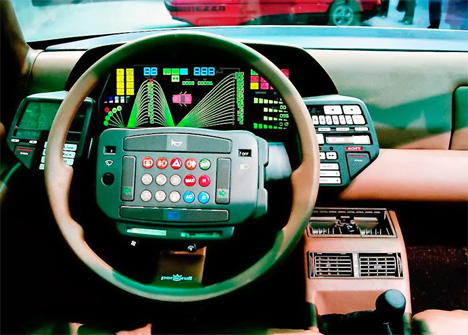
- Part-1 of this episode: WSIB Muscle & Malaise
- Square-bodies: An ’80s Retrospective
- Back to the 80s: Square-bodies Part-II, Judgement Day
- The Real-Deal: Square-body Chevy Pickups Explained
- Retro Test Drive: Renault R5 turbo II
- Retro Test Drive: Hello from 3900! (DeLorean DMC-12)
- Keep it going with WSIB 90’s Edition!
What else should you buy? Check out other What Should I Buy? Podcast episodes for more car buying “advice” 😉 And remember: the debate never ends – it just shifts gears.
Forget the obvious picks. No 944s, no IROC Camaros, no Ferrari 308s. We’re hunting for the forgotten heroes, the underdogs, the “what were they thinking?” cars that still turn heads.
Here are some of the panel’s top picks:
- Dodge Rampage: A K-car-based pickup with Omni/Shelby DNA. Utilitarian and mod-friendly.
- Shelby Charger & GLHS: Turbocharged madness with torque steer for days.
- Chrysler Conquest TSi: Mitsubishi-powered RX-7 rival with celebrity race cred.
- Fox Body Mustang Notchback: Undercover muscle with a five-speed.
- AMC Eagle 4×4: The original crossover, decades before the term existed.
- Jeep Cherokee XJ & Comanche: Square, capable, and surprisingly collectible.
- LaForza: Italian-designed, Ford-powered SUV oddity. So ugly it’s beautiful.
- Mercedes G-Wagen: Timeless, yes. Comfortable? Not so much. Don’s rant was legendary.
Some of the best “1980s” cars technically debuted in the early ’90s. So we agreed on a soft cutoff around 1993. If it culturally identifies as an ’80s car, it’s fair game.
Final Thoughts: Buy Weird, Drive Proud
Whether you’re chasing homologation dreams or just want something that makes people do a double take, the 1980s offer a treasure trove of options. From turbocharged Dodges to square-body Chevys, the era was rich with experimentation, personality, and unforgettable silhouettes.
So what should our first-time collector buy? Something odd. Something loud. Something that makes no sense – but all the sense in the world to a true petrolhead.
Stay tuned for part two, where we’ll dive deeper into the best buys under $20K and the quirkiest mods that make these cars truly shine.
Thanks to our panel of Petrol-heads!
To learn more about each of our guests, you can revisit their episodes on Break/Fix, or continue the conversation over on our Discord.
Guest Co-Host: Don Weberg
In case you missed it... be sure to check out the Break/Fix episode with our co-host. |  |  |
Guest Co-Host: Jeff Willis
In case you missed it... be sure to check out the Break/Fix episode with our co-host. |  |  |
Guest Co-Host: Daniel Stauffer
In case you missed it... be sure to check out the Break/Fix episode with our co-host. |  |  |
Guest Co-Host: Mark Shank
In case you missed it... be sure to check out the Break/Fix episode with our co-host. |  |  |
Be sure to catch our Executive Producer of our Drive Thru News series: Tania every month! As well as her very own episode of WSIB.
Don’t agree, let’s agree to disagree? Come share your opinions and continue the conversation on the Break/Fix Discord!


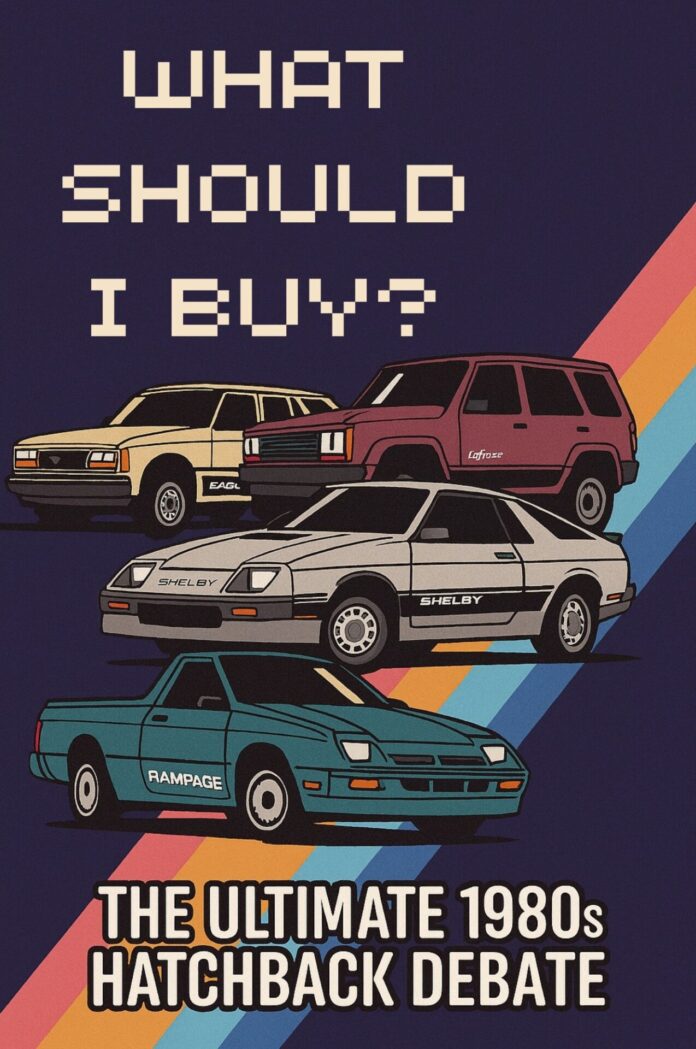

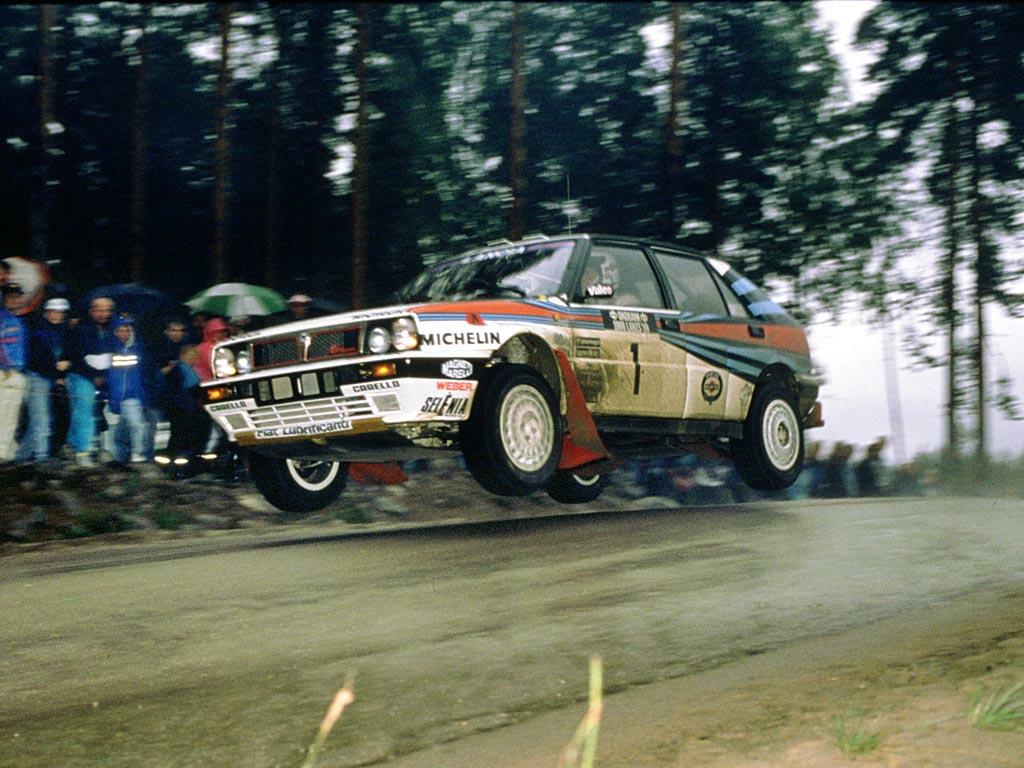

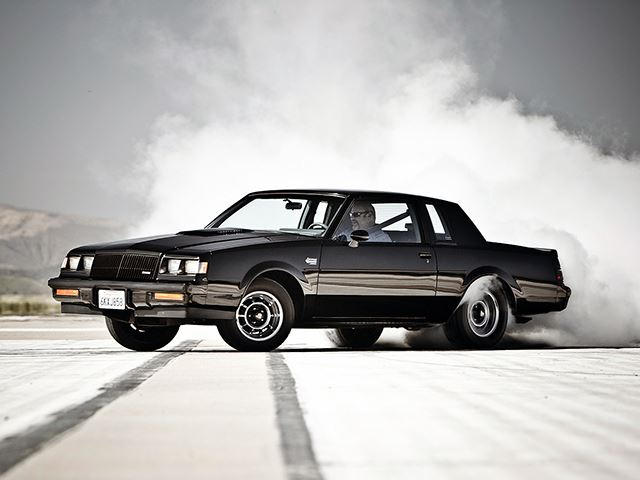
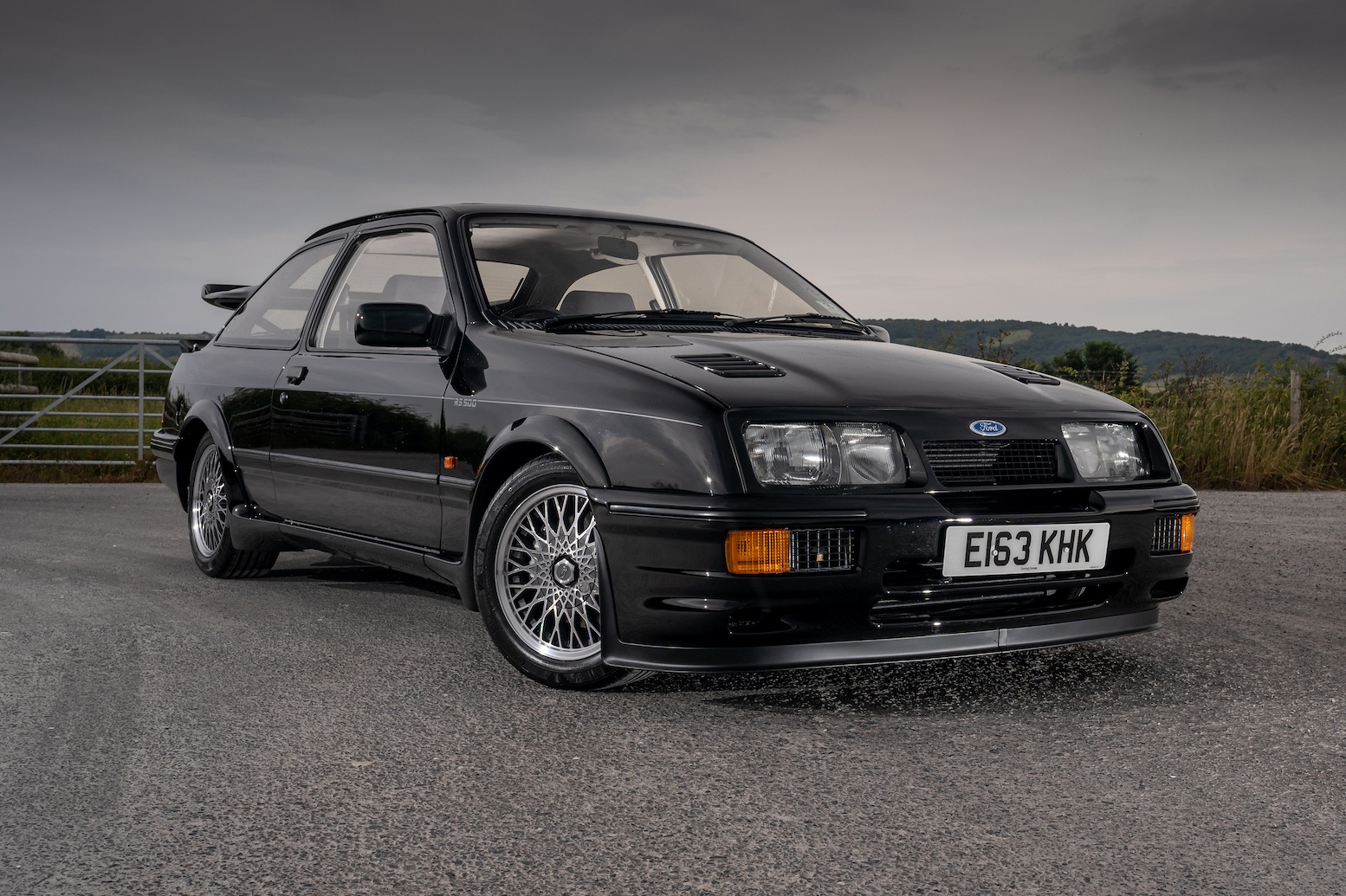
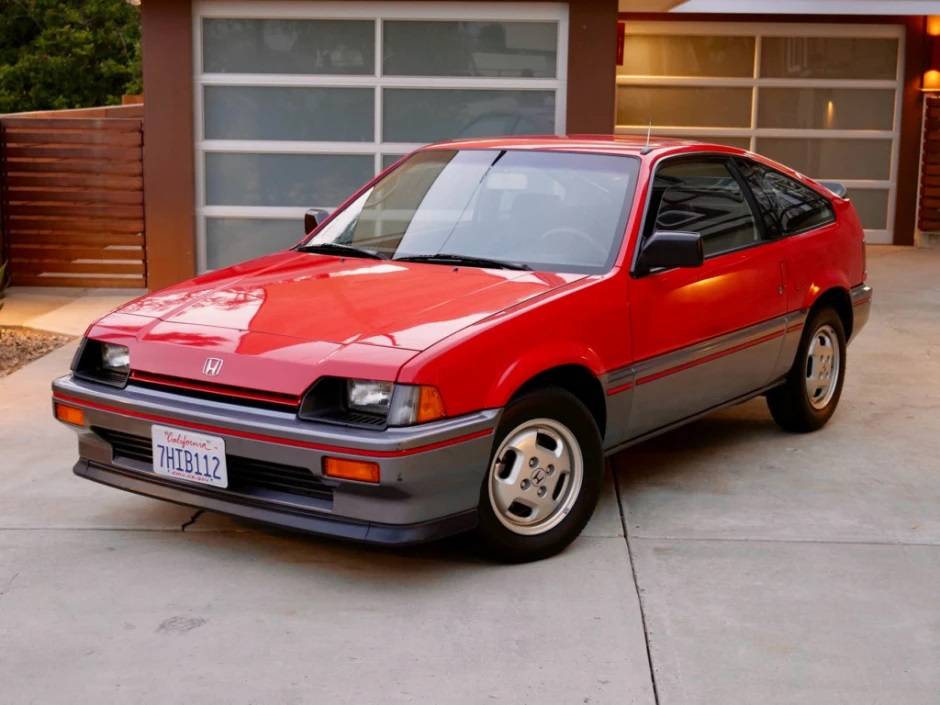
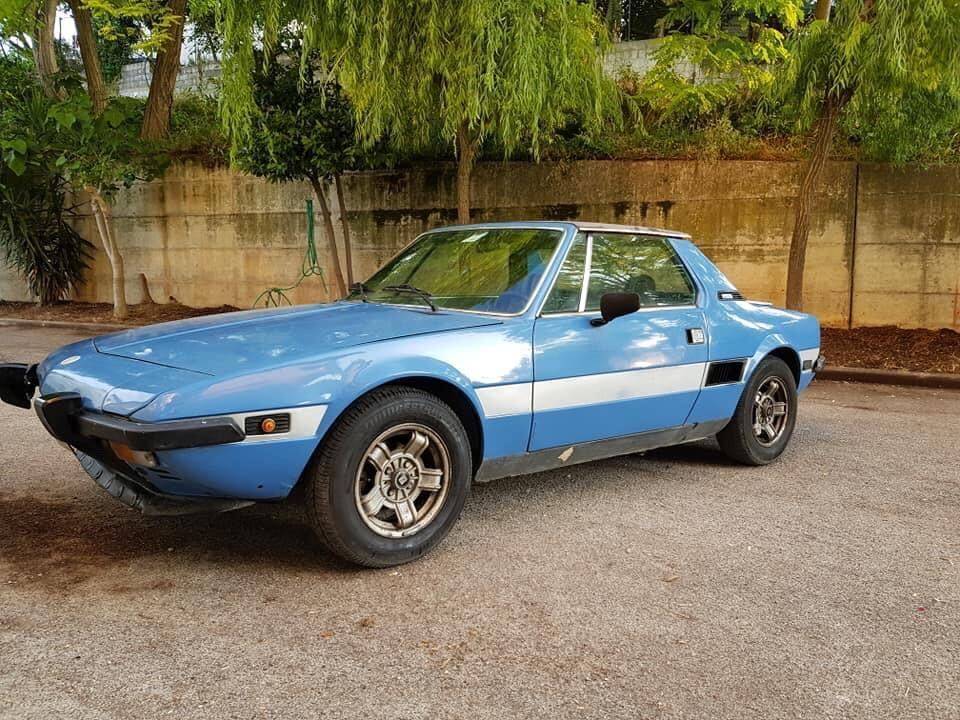
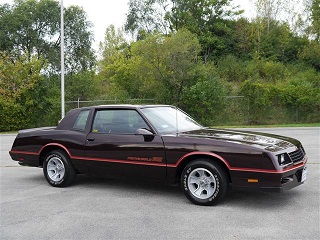
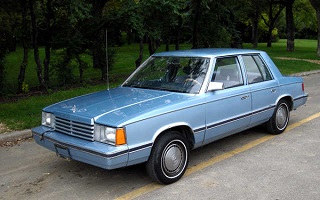
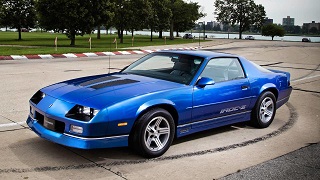

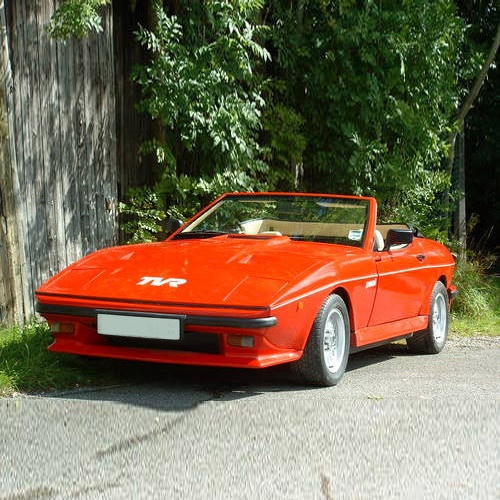
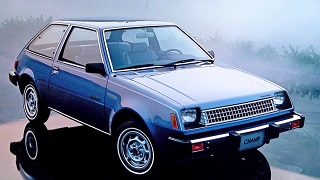
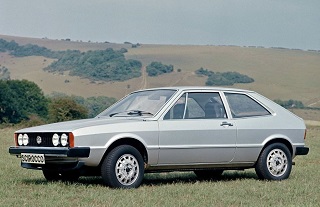

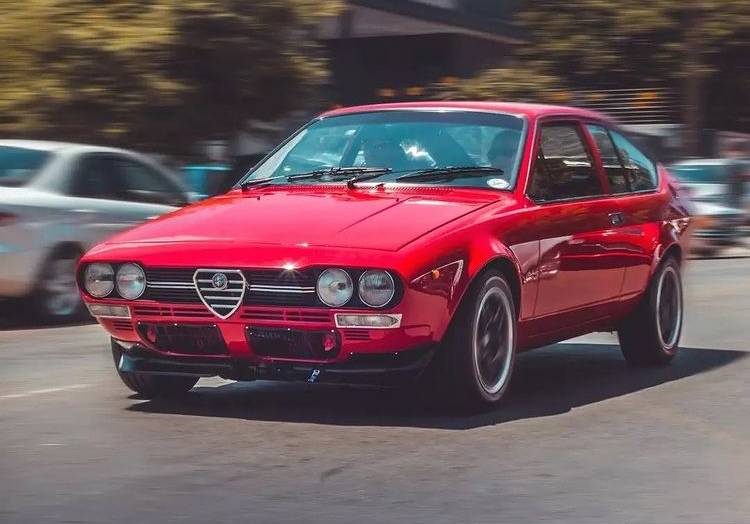
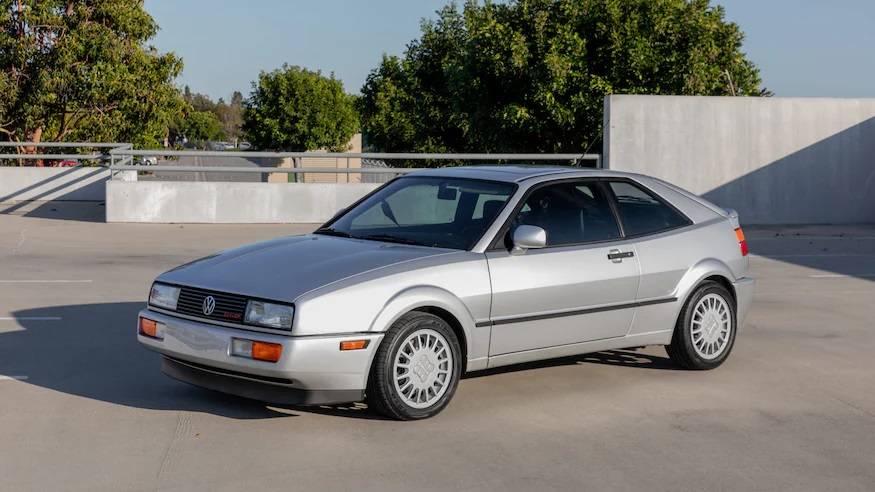
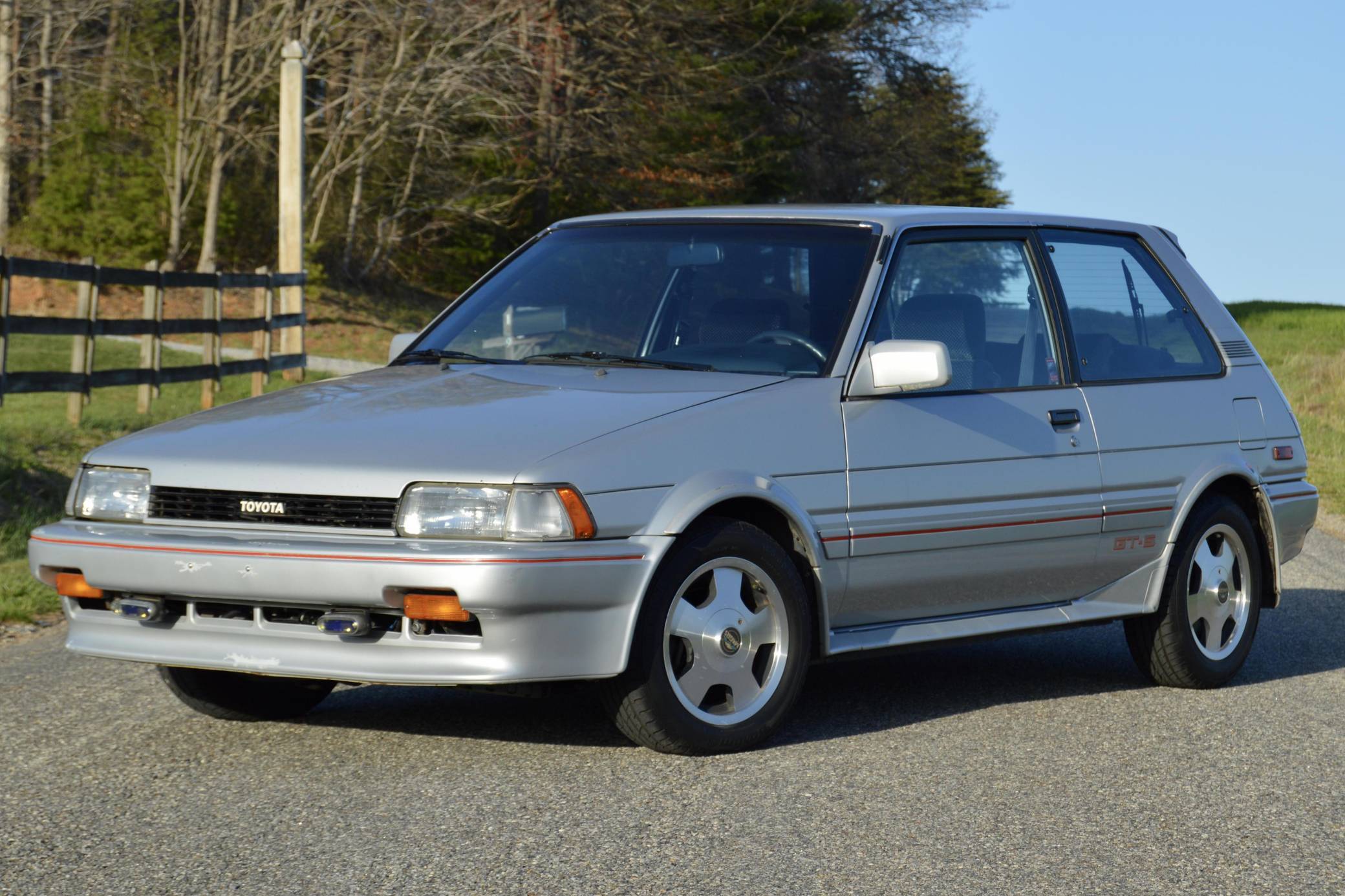
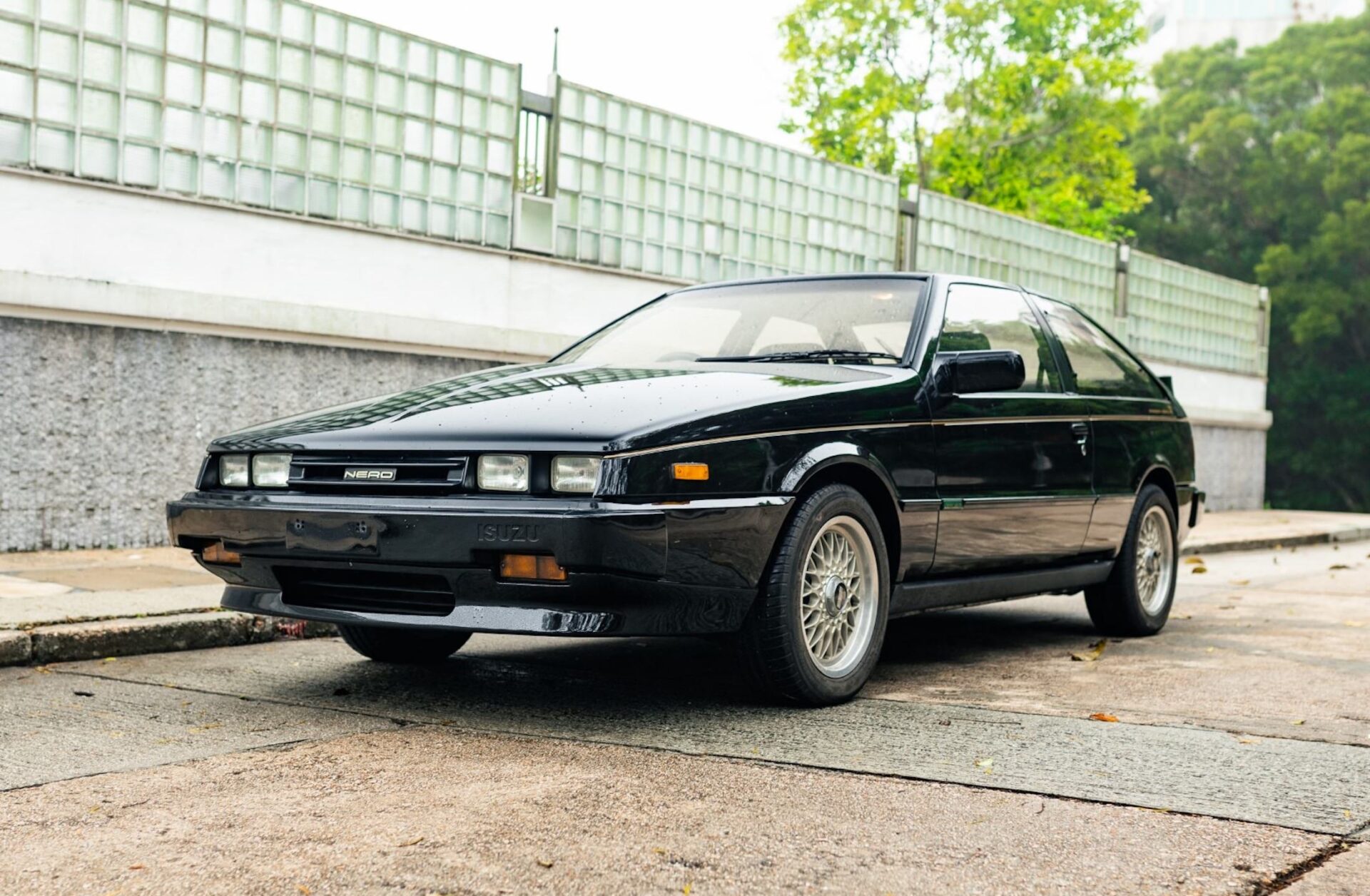
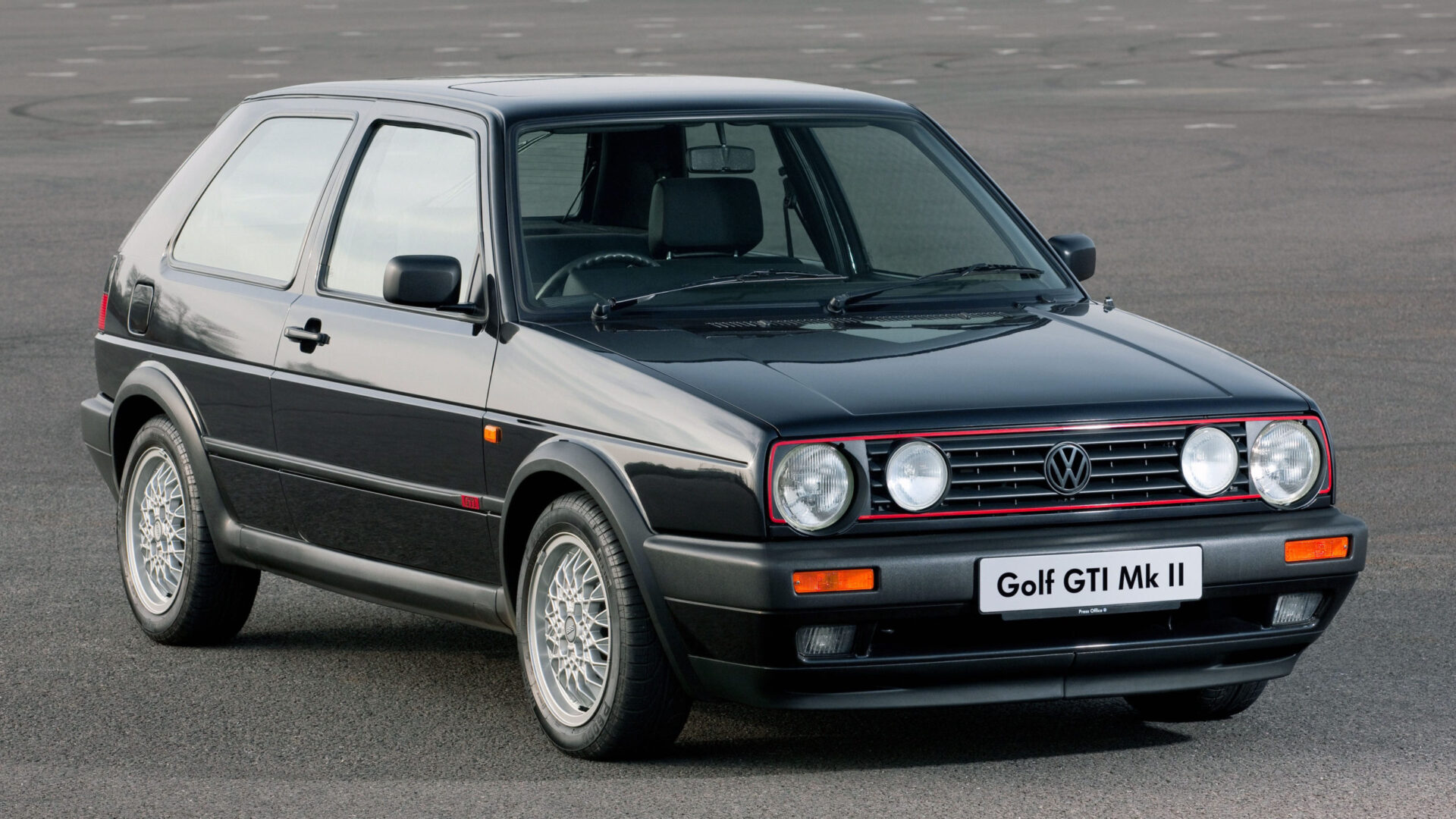
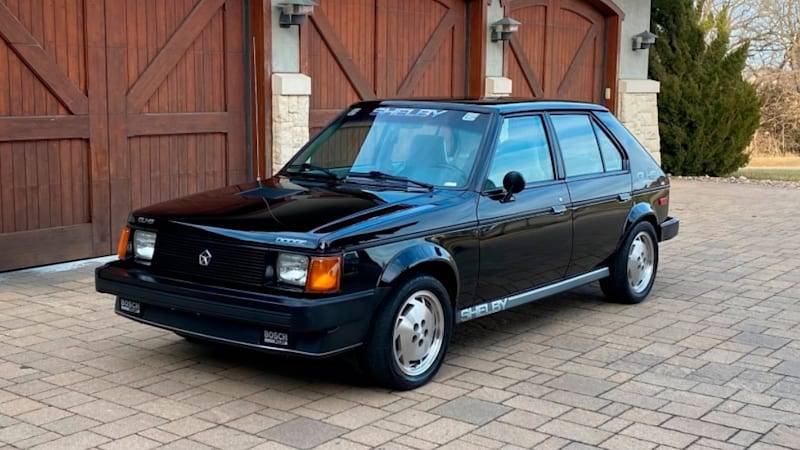
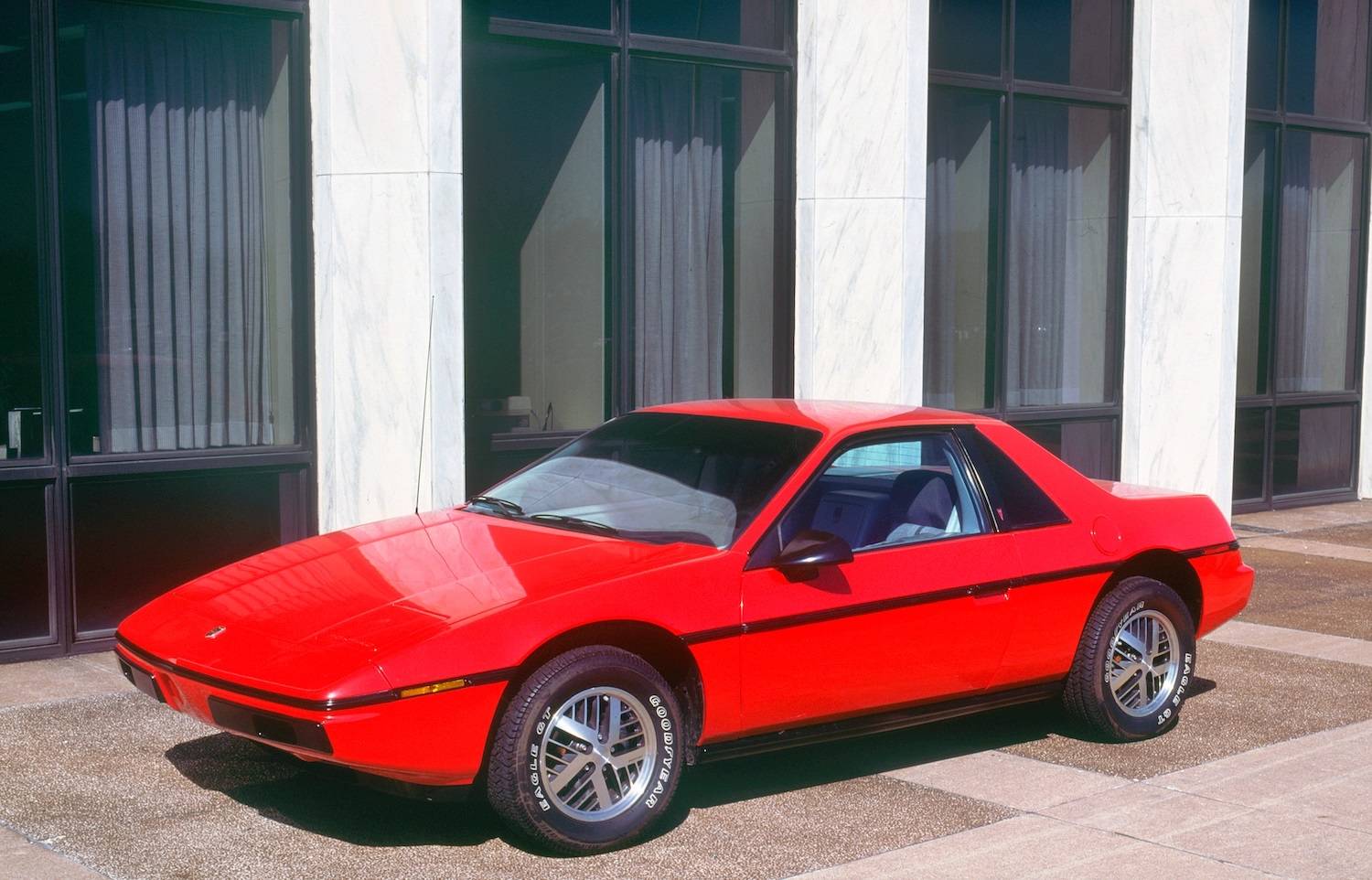
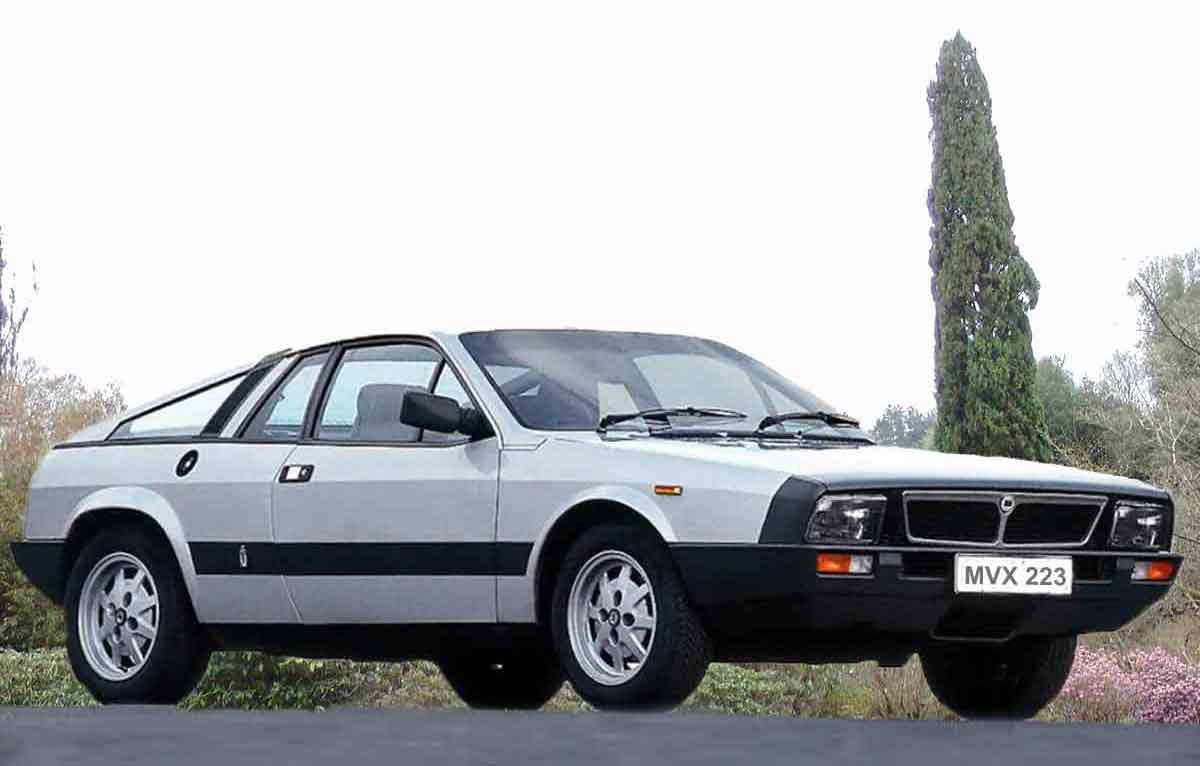
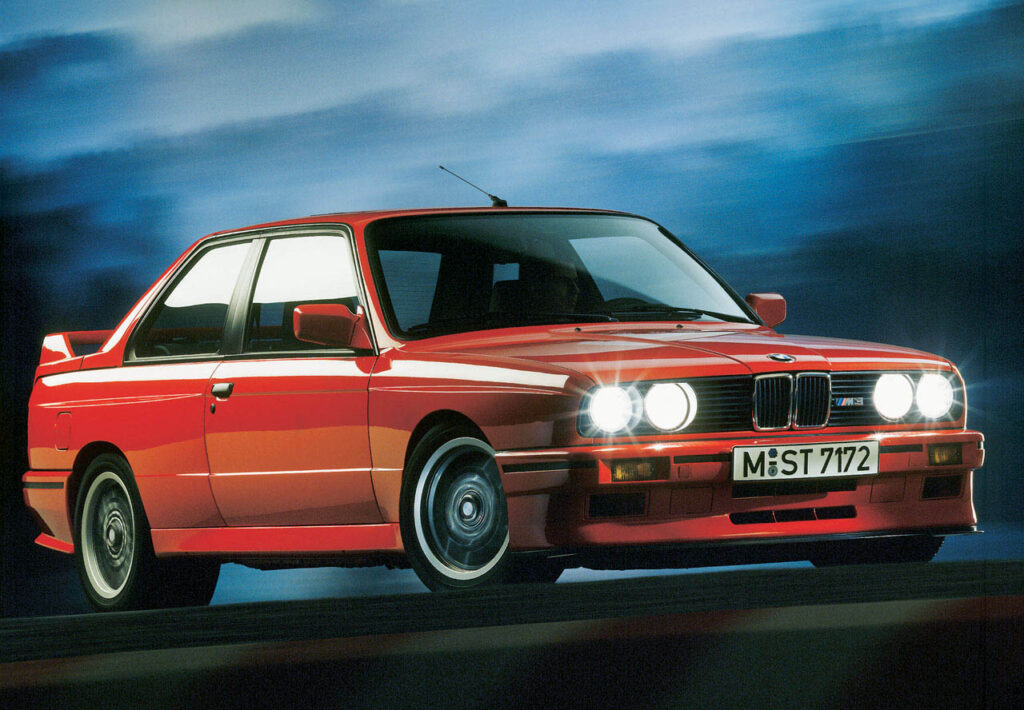

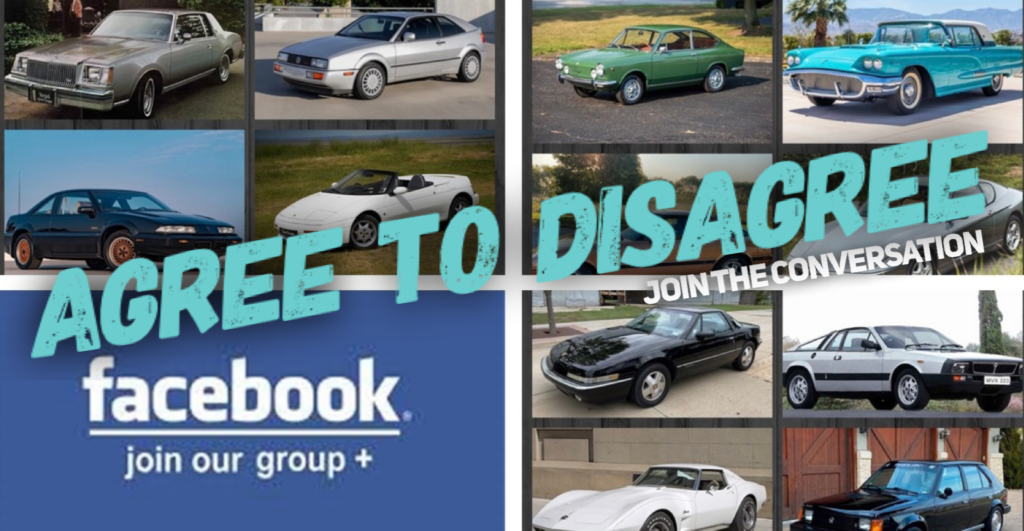





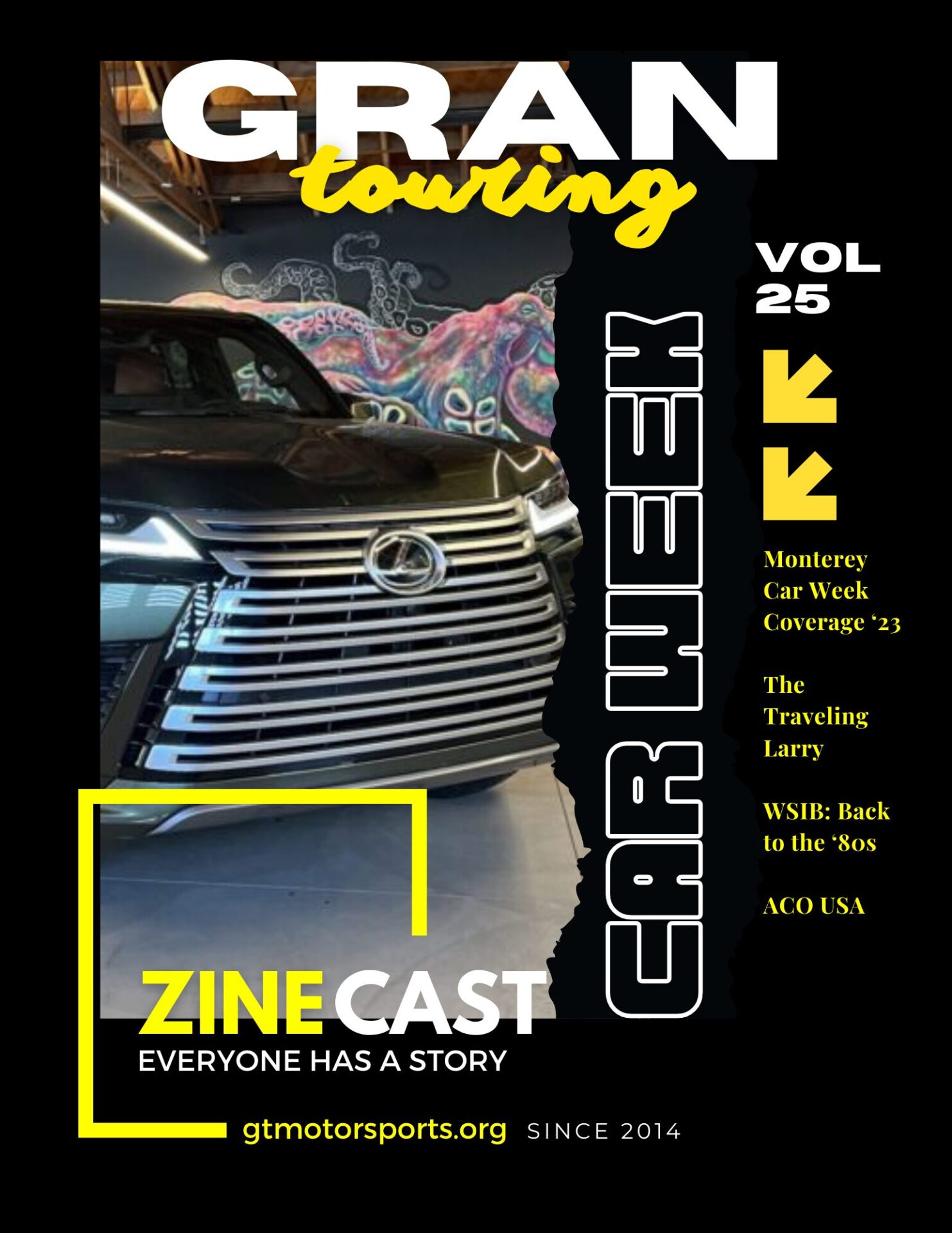








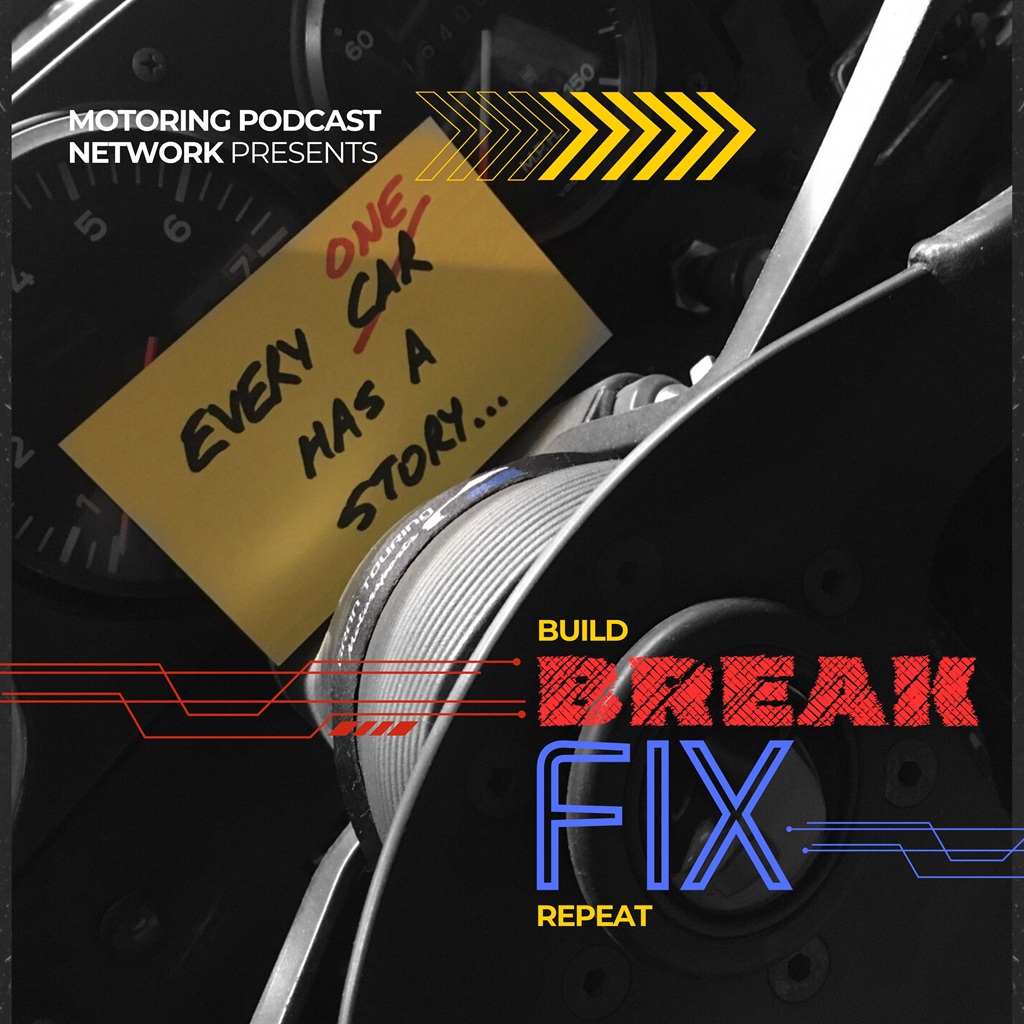





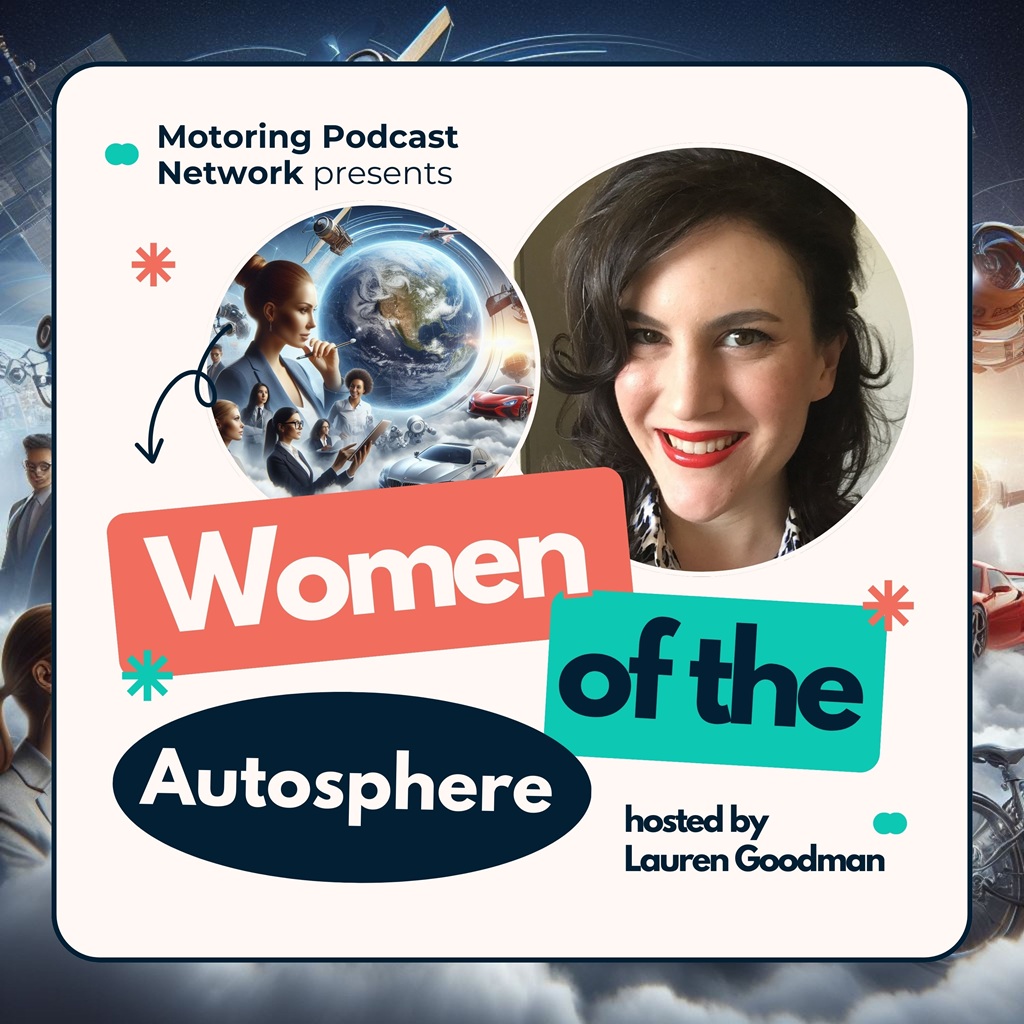



The best was the 1987 Buick grand national